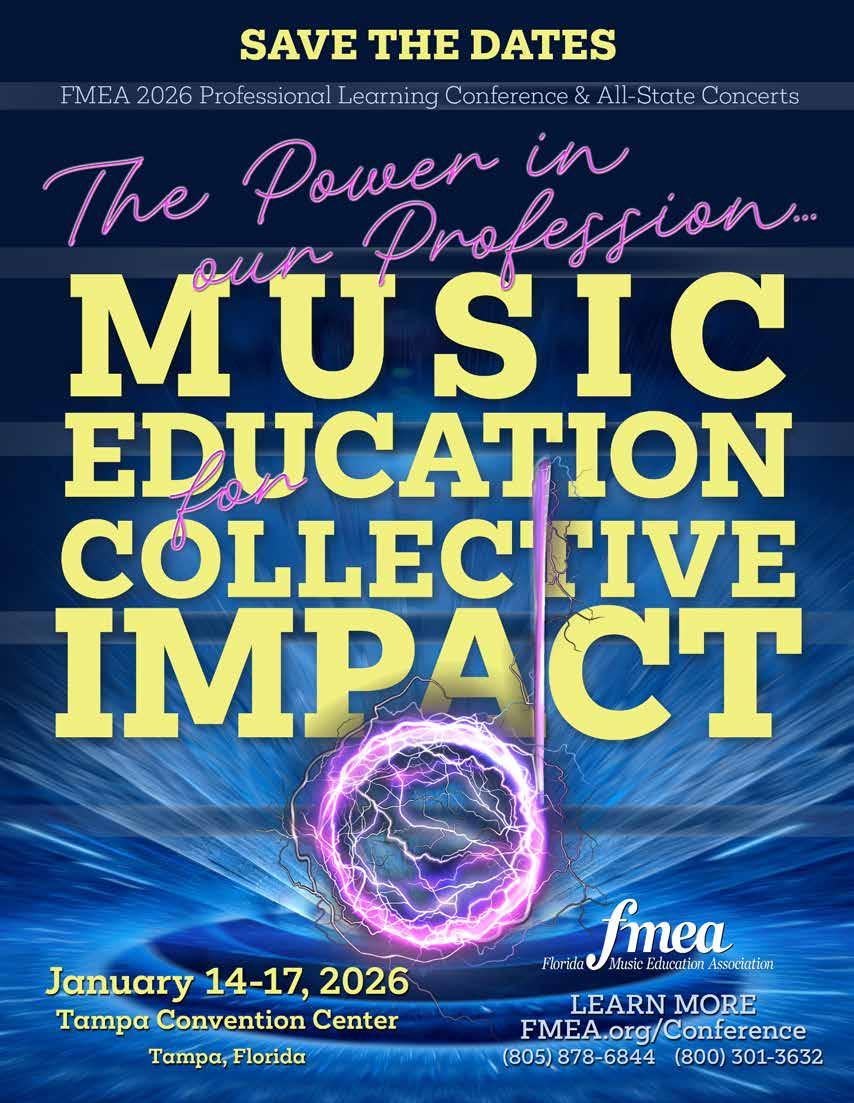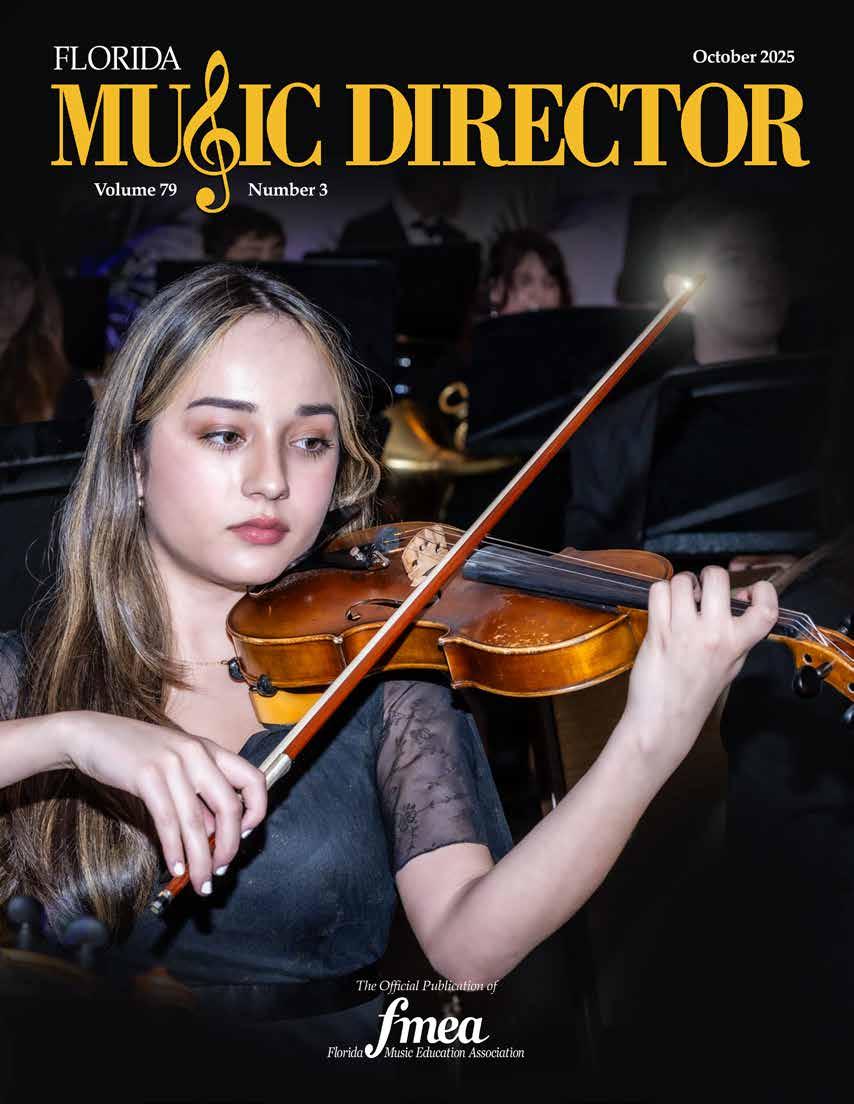

STUDY MUSIC AT STETSON
With just over 200 students in the program, the Stetson University School of Music is regarded as one of the nation’s finest undergraduate-only professional schools of music. Students enjoy the advantage of relationship-rich connections with faculty and remarkable opportunities for solo and ensemble performances. Register now for an audition on campus at the link below.
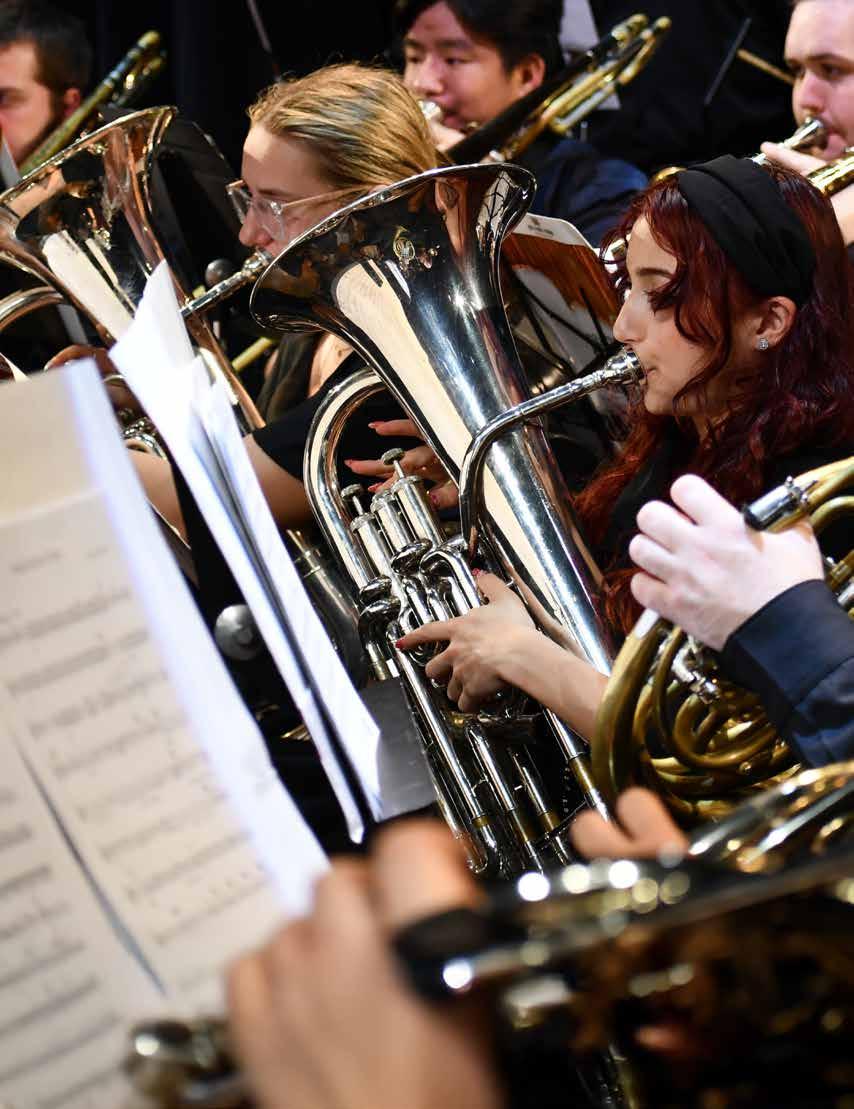
JANUARY 24, 31 | FEBRUARY 14, 21


Executive Director Florida Music Education Association
Kathleen D. Sanz, PhD Hinckley Center for Fine Arts Education 402 Office Plaza Tallahassee, FL 32301 (850) 878-6844 or (800) 301-3632 (kdsanz@fmea.org)
Editor-in-Chief
Kelly Miller, DMA University of Central Florida 12488 Centaurus Blvd. Orlando, FL 32816-8009 (407) 823-4545 (kelly.miller@ucf.edu)
Editorial Committee

Terice Allen (850) 245-8700, Tallahassee (tallen1962@hotmail.com)
Judy Arthur, PhD Florida State University, KMU 222 (850) 644-3005 (jrarthur@fsu.edu)
Alice-Ann Darrow, PhD (alifsu@mac.com)
Jeanne Reynolds (jeannewrey@gmail.com)
John K. Southall, PhD Indian River State College, Fort Pierce (772) 462-7810; (johnsouthall@fmea.org)
Advertising Sales Valeria Anderson (val@fmea.org) 402 Office Plaza Tallahassee, FL 32301 (850) 878-6844
Official FMEA and FMD Photographers
Bob O’Lary Amanda Crawford
Art Director & Production Manager
Lori Danello Roberts LDR Design Inc. (lori@flmusiced.org)
Circulation & Copy Manager
Valeria Anderson, (800) 301-3632
Copy Editor Susan Trainor
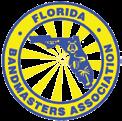
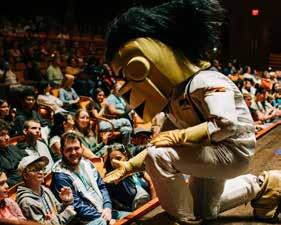


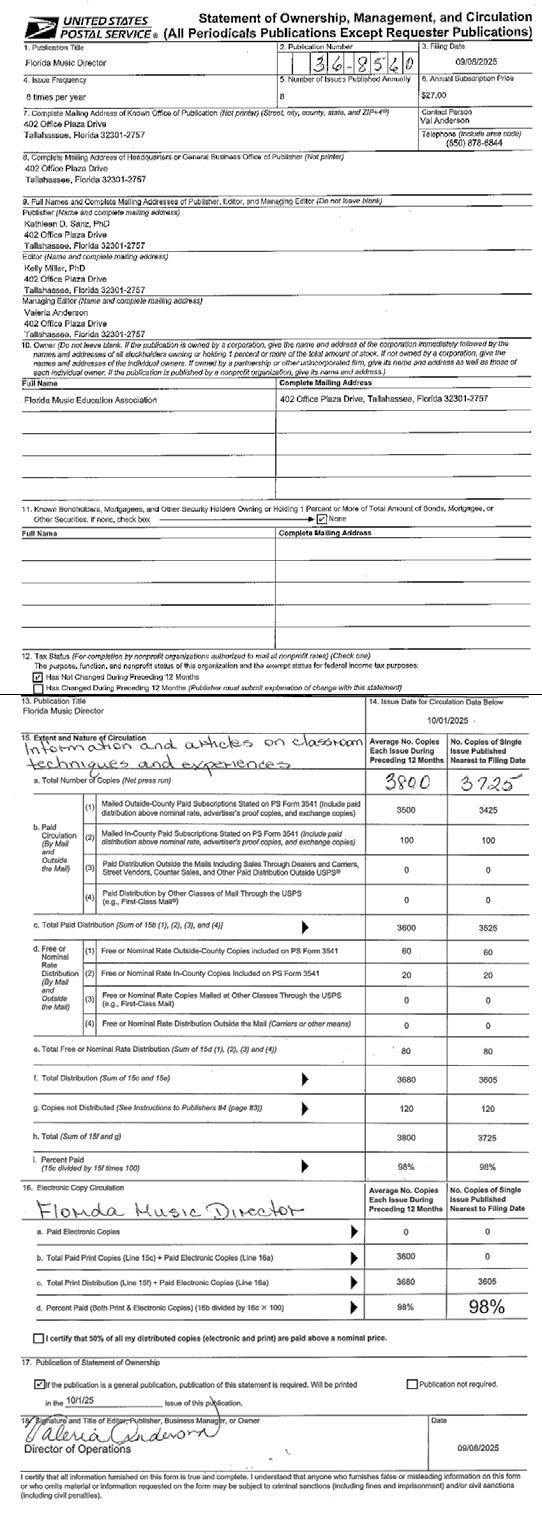
2025–26 FMEA MEMBERSHIP: You are eligible for membership in the Florida Music Education Association if you are an individual engaged in the teaching, supervision, or administration of music in elementary and secondary schools, colleges, or universities within the state. Visit FMEA. org/membership to learn more about the benefits of active membership.
SUBSCRIPTIONS: Direct correspondence regarding subscriptions to: Hinckley Center for Fine Arts Education, 402 Office Plaza, Tallahassee, FL, 32301-2757. Subscription cost included in FMEA membership dues ($9); libraries, educational institutions, and all others within the United States: $27 plus 7.5% sales tax.
SUBMISSIONS: Article and art submissions are always considered and should be submitted on or before the 1st of the month, one month prior to the publication issue to: Kelly Miller, DMA, kelly.miller@ ucf.edu.
All articles must be provided in digital format (e.g., Microsoft Word). All applicable fonts and images must be provided. Images must be at least 300 dpi resolution at 100% of the size. All submissions must be accompanied by a proof (color, if applicable). Ads may be submitted via email to val@FMEA.org.
CIRCULATION: The circulation of the Florida Music Director is 4,500 educators. Published eight times annually by The Florida Music Education Association, Hinckley Center for Fine Arts Education: 402 Office Plaza, Tallahassee, FL 32301-2757. FMEA reserves the right to approve any application for appearance and to edit all materials proposed for distribution. Permission is granted to all FMEA members to reprint articles from the Florida Music Director for non-commercial, educational purposes. Non-members may request permission from the FMEA office.
Advertiser Index
The Florida Music Director is made possible by businesses and organizations that advertise with us. They make it possible to provide you with a high-quality publication, and we gratefully acknowledge their support of our mission. We hope you will take special notice of the following advertisement and consider the products and services offered. It is another important way you can support your professional association and the enhancement of Florida music education.
The publisher does not endorse any particular company, product, or service. The Florida Music Education Association (FMEA) is not responsible for the content of any advertisement and reserves the right to accept or refuse any advertisement submitted for publication. Information for advertisers (rate card, insertion orders, graphics requirements, etc.) can be found at FMEAMediaKit.org Florida Music Director reserves the right to refuse any ad not prepared to the correct specifications OR to rework the ad as needed with fees applied.
The advertisers shown in bold provide additional support to FMEA members through membership in the Corporate and Academic Partners (FCAP) program. FCAP partners deserve your special recognition and attention.
President’s MESSAGE
Important FMEA Business
Fallis here! I wish I could say we have cooler temperatures, dryer air, and the need for a light sweater and a pumpkin spiced latte, but alas, #Florida. However, we all can look ahead to those moderate temperatures at our conference in January! We look forward to welcoming our members, from Key West all the way to Perdido Key, to Tampa, January 14–17, 2026!
I want to dedicate some time this month to update you on some important FMEA business. By now, you likely have heard about and read the announcement from FMEA regarding Dr. Kathleen Sanz’s retirement as executive director, scheduled for spring 2026. On behalf of all FMEA members, we congratulate Dr. Sanz on a tremendously impactful career serving students and teachers in the arts! We are certain FMEA is in the healthy place it is due to Dr. Sanz’s steadfast leadership and stewardship of our association. Thank you, Dr. Sanz!
Please know the Center for Fine Arts Education (CFAE) Board and appointed search committee are working very hard to recruit, and successfully place, our next executive director of FMEA and president and CEO of CFAE. We have crafted a thorough process using an external consultant, and representatives on the search committee reflect the major operational units of CFAE. We are confident this position will attract stellar candidates, based on the incredible road Dr. Sanz has paved. I look forward to updating our membership on this vital position when I am able. For now, a heartfelt congratulations to our dear friend Kathy. Brava, Dr. Sanz!
As you know, I have pledged to communicate with you openly, honestly, and frequently as your president. It is incumbent on me to inform you of an ongoing
Harry “Skip” Pardee, EdD President Florida Music Education Association

discussion among our executive leadership and Board about our relationship with the National Association for Music Education, our national music education umbrella association. Please know that FMEA leadership has engaged in multiple conversations with the highest elected officials at NAfME regarding concerns about the national association. Most notably are concerns originating from the recent and sudden resignation of Dr. Deb Confredo, our longtime colleague and friend.
At our September board meeting, we were pleased to welcome our national president, Dr. Cecil Adderley, and other members of the National Executive Board, for a conversation about the path forward for NAfME and Florida’s affiliation with it. The conversations have been positive, forward-thinking, and collaborative.
As your president, I must not only be steward of your membership funds sent to the national organization, but also, and most importantly, confirm NAfME’s mission is aligned symbiotically with FMEA in as many ways possible. My promise to you is to maintain this transparency with colleagues in our state. When appropriate, I will share updates with the membership. If you have any questions, please feel free to reach out to me directly at skip.pardee@FMEA.org. I am happy to speak with you anytime regarding this matter, or any others, as we all work hard to advance music education in our beautiful state.
Thank you, colleagues, for all you do for our students every day. You are providing a vital outlet for students in our schools. Please know how appreciative we are for all you do to ensure a robust arts education for our state’s young people. They deserve what you have to offer, and you deserve the highest accolades for offering it.
Always musically,

Harry “Skip” Pardee, EdD, President Florida Music Education Association
Advocacy REPORT
Advocacy: It’s Easier Than You Think!
Ihope your school year is off to a wonderful start! I want to share again how excited I am to serve you, the FMEA membership, alongside President Skip Pardee and Jeanne Reynolds as your advocacy co-chairperson.
I didn’t always see myself as a music education advocate. But through watching passionate colleagues in Sarasota and learning from leaders like Jeanne, I discovered something important: We are all advocates, just waiting to find our “jam.”
The word advocacy can sound intimidating to many teachers. In reality, you are already doing it in small, informal ways every day. Advocacy at the school, local, state, and national levels is easier than most music educators realize … and it is essential.
When we hear the word advocacy, it’s easy to imagine lobbying at the state capitol or performing at a school board meeting. But championing music education is often much simpler than that. At its core, it is about sharing the value of what we do: telling our students’ stories, celebrating their successes, and making sure others see the impact of music in their
lives. This visibility leads to opportunity, whether that means protecting program funding, expanding access, or ensuring that music remains a vital part of every child’s education.
Early in my career, I invited my principal to play a simple wood block part in a middle school string orchestra piece. At the time, I thought it would be just a fun way to involve him. What I didn’t realize was how deeply that small experience would connect him to our program and help him appreciate the importance and complexity of what we do. From that day forward, he became a loyal supporter of our orchestra.
School-based advocacy is really about helping others see the value of what’s happening in your classroom and program. For example, many of you have your marching bands playing in the courtyard on Friday mornings as students arrive. These “Morning Music” pop-up concerts set a mood, ramp up school spirit, build supporters, and give you a little extra rehearsal time, all while making people smile. Other easy first steps include: w Sharing student success stories with administrators
w Inviting staff to concerts and rehearsals (or encouraging students to do the inviting!)
w Keeping families engaged through newsletters, programs, and updates Advocacy for music education starts close to home. Every time we share student performances in the community, invite administrators into our classrooms, or provide music for local events, we’re building allies who see the value of what we do. From there, the circle only grows wider. At the state level, your membership in FMEA amplifies your voice along with many others, creating strength in numbers. Check out our FMEA Advocacy page. Nationally, NAfME makes it easy to join campaigns that protect and expand programs across the country.


At every level, advocacy comes down to sharing your story and your students’ stories. With a few intentional, “easier-than-youthink” steps, you can begin your journey and make a real difference for music education.
Ready to jam? Try one simple advocacy move this week, maybe a “Morning Music” concert, a shout-out in your newsletter, or a quick invite to your next rehearsal. Take a moment to check out the FMEA 12 Months of Music Advocacy: Doable Deeds Calendar, created by advocacy committee member Jon Casañas, for more easy ideas. You’re already creating magic; now let others see (and hear) it, too!
Advocacy begins with you, grows with us, and ultimately protects the future of music for all students.
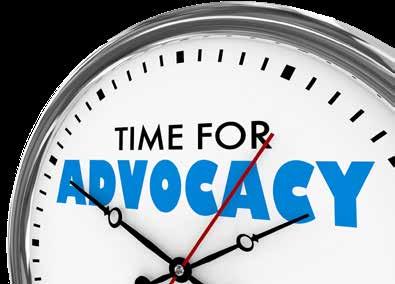
Angela Hartvigsen
Jeanne W. Reynolds
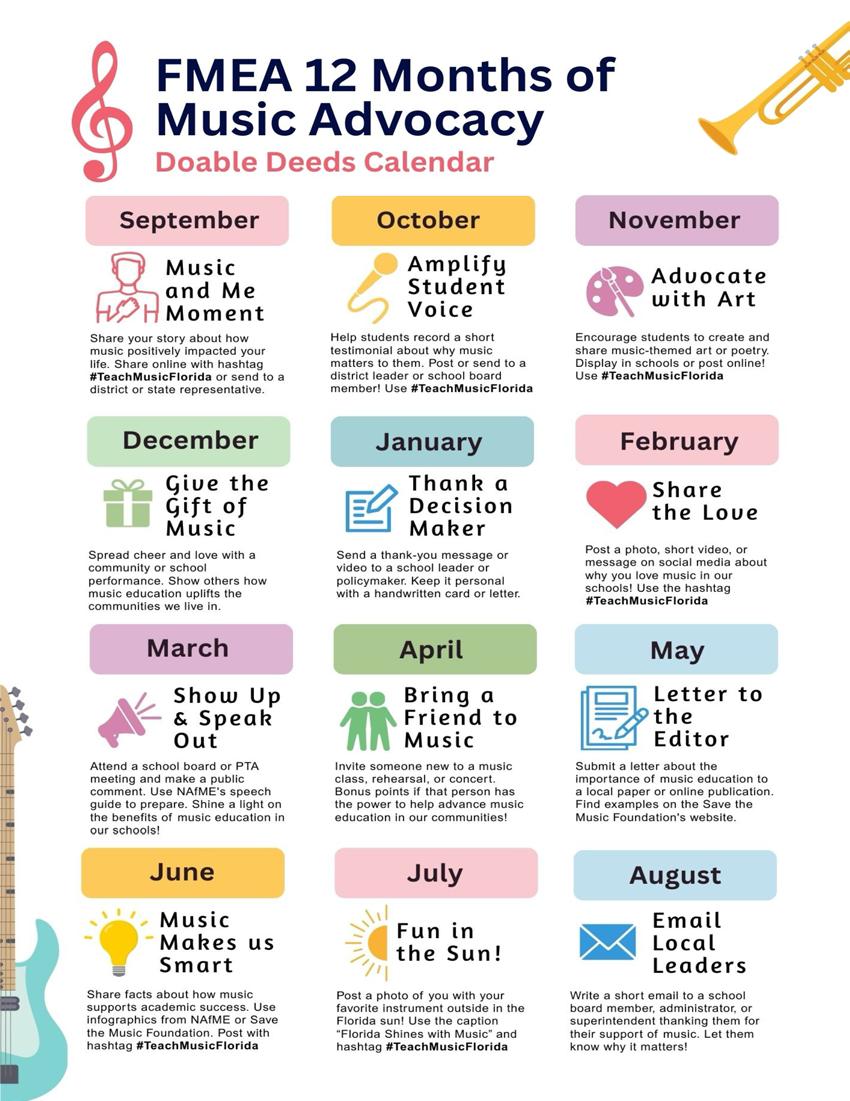
FMEA PRE-CONFERENCE 2026
Wednesday, January 14, 2026, from 1:00 pm – 5:00 pm
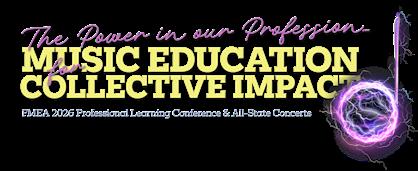
Lift Every Voice ... Especially YOURS!
It’s an interesting time for music education in Florida. We see thriving, growing programs in some communities, yet in others, music educators are fighting against underfunding, understaffing, and the threat of losing their programs entirely.
With that in mind, our 2026 FMEA Pre-Conference
Lift Every Voice ... Especially YOURS! is designed to engage, equip, and empower music educators. This year, we’ll focus on giving you the tools to be
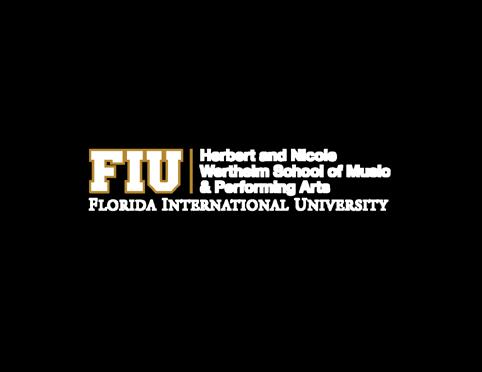

$1,000 Scholarships Available
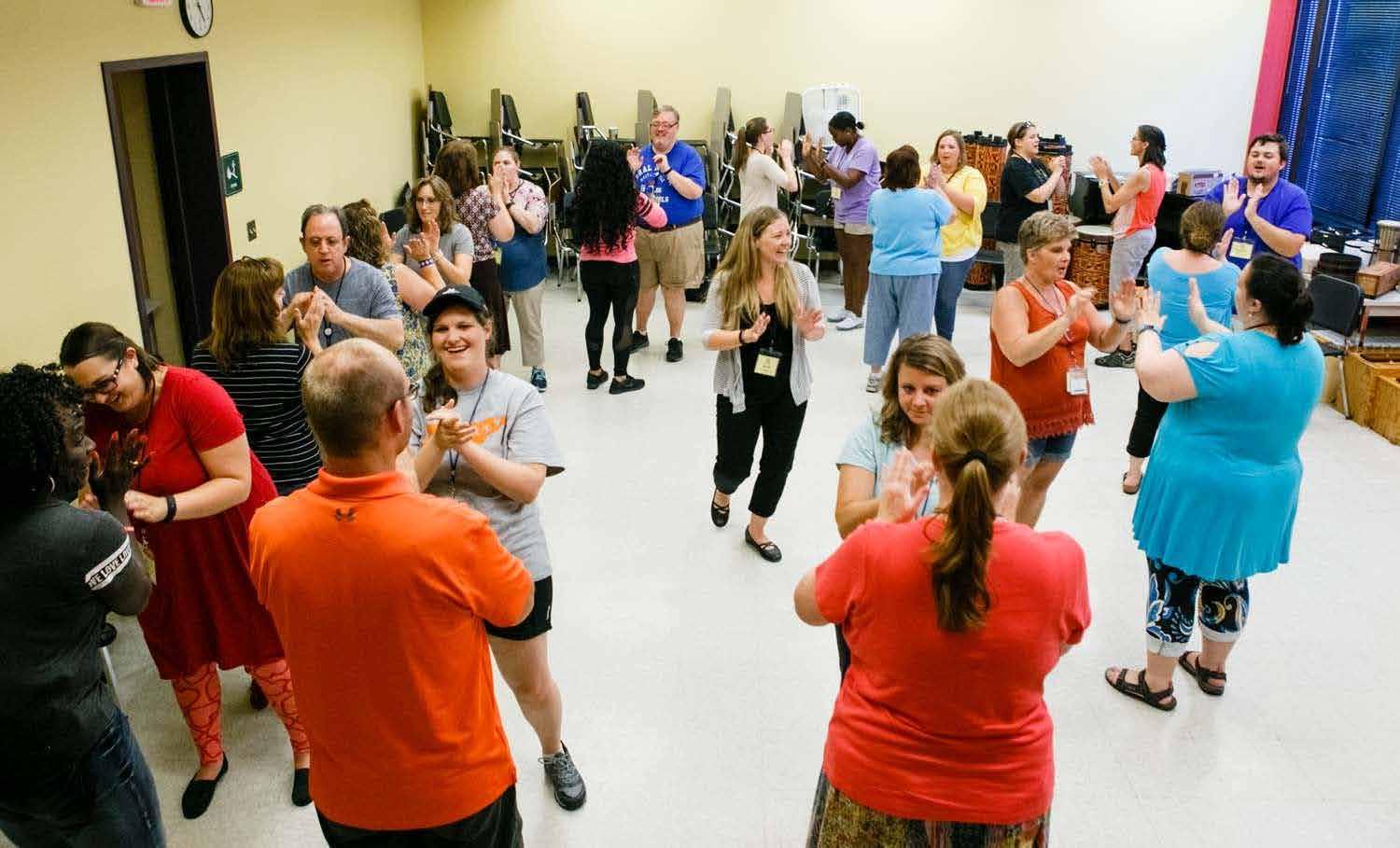
Small
Encouraging,

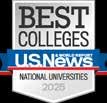
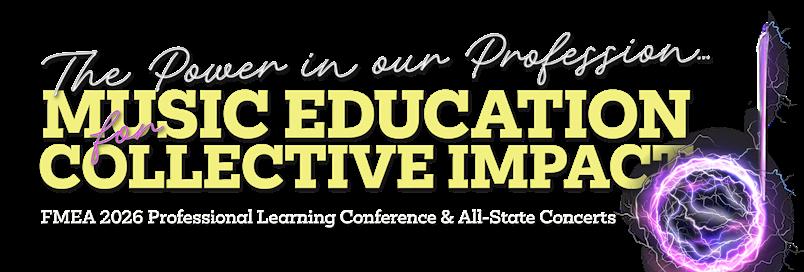
We can’t wait to see you in Tampa this January!
The FMEA Professional Learning Conference is one of the largest music education professional development events in the United States. In addition to approximately 250 clinic sessions and concerts, it is host to 24 all-state ensembles featuring Florida’s top band, orchestra, chorus, guitar, Orff, and popular music students conducted by world-class conductors and teachers. It is attended by more than 10,000 people, including secondary music directors, elementary music teachers, music supervisors, college students, college music teachers, school administrators, K–12 students performing in the all-state ensembles, students and professional musicians performing with invited performing ensembles, exhibitors, and parents and family members of performing students.
So many reasons to participate:
w An exhibition hall with world-class exhibitors providing products and services for music educators and students
w More than 3,000 music teachers and 300 administrators
w Approximately 250 sessions, covering a variety of topics for all music educators, with on-demand access to recordings after the conference
w Performances and mini-concerts from some of Florida’s top music programs
w Networking opportunities, college fair, awards ceremony, and other special events


Conference Policies
To take advantage of early discounted rates, you must register and pay before the early registration deadline. If you are mailing a check to the FMEA office to pay for your registration, it must be postmarked on or before the EarlyRegistration Deadline and arrive in our office before the holiday break.
1. All participants—directors, students, chaperones, and guests—must be registered for the conference.
2. Only directors may register their groups or pick up registration materials if preregistered.
director’s preregistration packet and supervise the students at all times.

3. All participating students must be chaperoned. As required by FSMA, at least one chaperone, other than a director, is required for every ten (10) students or a fraction thereof. However, FMEA policy allows one free chaperone for every six (6) all-state students or a fraction thereof.
4. An additional paid chaperone may be registered for w each six (6) students registered, or w each all-state rehearsal site where registered students are rehearsing.
5. If a participating student is not accompanied by the director from that student’s school, then the principal from that school must furnish a letter designating the person from the school or school district who is to be in charge of that student. The letter should be addressed to the FMEA executive director, explain the extenuating circumstances preventing the director from attending, and must be submitted with registration materials. The school will be notified of approval. This does not release the director from the requirement that they must be registered for the conference. If approved, the person designated in the letter will pick up the

6. Student observers are not allowed to attend the conference. If any student observers are brought to the conference, the offending school’s participation in the conference may be eliminated the following year. Tri-M students or those approved for the “Student Experience” program who are registered and participating in sessions or working for the all-state concerts are exempt from this rule. Chaperones or other attendees are not allowed to bring children who are not participating in an allstate ensemble or student experience . Only registered students, teachers, and chaperones wearing a conference badge are allowed in and around the rehearsals and conference areas. Please make babysitting arrangements before attending the conference.
7. FMEA & NAfME Membership Requirements:
w All Florida school music teachers must register for the conference as FMEA members and be current members of FMEA and NAfME. This includes session presenters, all-state conductors, and directors of all-state students, invited performing groups, and mini-concerts.
w All-state conductors from Florida schools, colleges, or universities must also be FMEA members.
w No current music teacher may register as a chaperone.
w Collegiate students must be collegiate members of FMEA and NAfME.
w Attendees who live outside of Florida must be current members of NAfME. Attendees living outside the United States may contact our office for registration instructions.



Chaperone Registration
Chaperone registration is based on the following rules:
Elementary Students
w For each elementary student registered, one free chaperone and one paid chaperone may be registered.
w Any additional attendees must purchase a “Guest Pass” at on-site registration for entry into the convention center.
Middle School and High School Students

(see below). These will be reviewed on a case-by-case basis.
3. Refunds must be requested in writing, or through our CONTACT US page.
4. All requests for emergency refunds must be received no later than January 31, 2026. Requests received after that date will be denied.
5. All refunds will be issued after the conference is completed.
6. There are no refunds for concert tickets or membership dues.

If you test positive for COVID-19 or develop symptoms before the conference:
w If you have symptoms of COVID-19, the flu, or anything that may be contagious, or if you test positive within five days before your planned arrival at the conference, please follow these procedures:
If you have all-state students: You will need to find another teacher to supervise your students and pick up your badges in accordance with conference policy #5 on the previous page. Because director conference registration is a requirement for all-state student participation, you are not eligible for a refund.
If you do NOT have all-state students: Send an email using our CONTACT US page describing your symptoms or test results to request a refund in accordance with the policies above.
w If you are not showing symptoms, get re-tested a few days later. If the subsequent test(s) are negative and you still do not have symptoms, research has found that you are most likely not contagious, so you are welcome to attend the conference.
w For every six students registered, one free chaperone and one paid chaperone may be registered. No other chaperones may be registered until the seventh student is registered.
w Any additional attendees (chaperones or guests) must purchase a “Guest Pass” at on-site registration for entry into the convention center.
w EXCEPTIONS
If you have students in more than one performing ensemble, you may pay for a chaperone for each performing ensemble in which you have registered students.
If you have students from different schools, you may pay for a chaperone for each school for which you have registered students.
Clarification: these are not additional “free” chaperones; these exceptions only allow you to register an additional paid chaperone in addition to the one free and one paid chaperone per six students normally allowed.
Chaperones are not allowed to bring other children who are not participating in an all-state ensemble or student conference experience . Only registered students, teachers, and chaperones wearing a conference badge are allowed in and around the rehearsal areas. Directors are asked to make sure their chaperones are aware of this policy and make babysitting arrangements for their other children before agreeing to serve as chaperones.
Policies & Procedures
Indemnity Clause
FMEA reserves the right to change the conference/workshop content, timing, speakers, or venue without notice. The event may be postponed or cancelled due to acts of terrorism, war, extreme weather conditions, industrial action, fewer than expected delegates, pandemic, or any event beyond the control of FMEA. If such a situation arises, FMEA will endeavor to reschedule the event; however, FMEA cannot be held responsible for any cost, damage, or expenses that may be incurred by the registrant as a consequence of the event being postponed or cancelled. Some registrants consider travel insurance to cover the cost of the registration, travel, and expenses for these types of situations. FMEA is not responsible for any registrant’s personal injury (i.e., physical, psychological, or emotional stress) or property damages while attending an FMEA conference or event. Conference registrants assume all risks inherent in attending an FMEA conference for which the registration covers, whether before, during, or after the conference.
Security Procedures
The Florida Music Education Association is working with the Tampa Police Department and Allied Security at the Tampa Convention Center (TCC) to enhance the conference experience for the students and attendees.
Great News!



In order to help keep attendees safe, there will be a heightened security presence throughout the TCC and at various hotels. All entrances to the TCC will be patrolled by uniformed officers of the Tampa Police Department and uniformed Allied Security personnel. They will be patrolling the TCC as well. The Tampa Police Department will be at the crosswalks between Marriott Tampa Water Street and the TCC, at concerts, and patrolling some of the downtown hotels during rehearsals. All attendees (this includes members, exhibitors, chaperones, and student participants) must wear their conference badge during the conference once the authorized registrant obtains the conference packet.
Please be prepared for random bag and/or purse searches. It is encouraged, if at all possible, to use a clear bag, similar to those used at sporting events, for entrance to conference events. Enjoy the Conference Experience.

Photographic Release
By attending the conference and/or associated activities, you grant permission for FMEA to use any and all photographic imagery and video footage taken of you and your students at this event and activities pertaining to this event, without payment or any other consideration. You understand that such materials may be published electronically or in print, or used in presentations or exhibitions.
Code of Conduct
FMEA is dedicated to providing a positive environment of respect and civility for all attendees, including members, students, parents, speakers, clinicians, exhibitors, sponsors, staff, volunteers, and guests. All attendees are asked to follow all applicable laws and conference policies and to refrain from physical and verbal harassment, bullying, disorderly conduct, or any actions or behaviors that create unsafe conditions or interfere with presentations or performances. Harassment, bullying, and sexual language and imagery are not appropriate for any conference venue, including clinics, workshops, concerts, rehearsals, social events, online, and social media. Violations should be reported to convention center security or conference staff in a timely manner. Violators and their registered students may be expelled from the conference without a refund at the discretion of the FMEA Executive Committee.

Session Attendance Verification Reports
Provide proof of the sessions you attended to your administration with Session Attendance Verification Reports!
Each of our presenters will be provided a QR code and asked to display it on the last slide of their presentation. Scan that QR code to confirm your attendance and add the session to your Verification Report.
Requirements Register for the conference, either via preregistration or on site.
Make sure you can log in to the FMEA website using the web browser on your phone. Use the username and password you chose when you renewed your membership. If you are from outside of Florida, you should have chosen your username and password when you registered for the conference.
Learn how to scan a QR code with your phone. With iPhones and newer Androids, you just need to open your camera, point it at the code, and a box will appear for you to click.
FMEA does NOT automatically submit your hours for you . It is up to you to follow the process outlined by your school or school district to apply for the professional development points toward your certificate renewal.
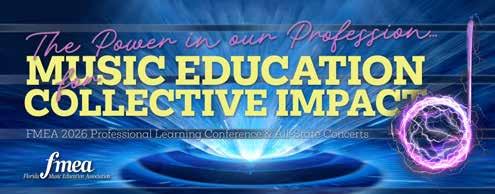
Important
Conference Dates & Information
(subject to change)
October 1, 2025
October 24, 2025
October 30, 2025
November 3, 2025
November 7, 2025
November 11, 2025
Presenters’ deadline for editing session details and requesting A/V equipment.
Popular Music Collective submission deadline ( FMEA .org/programs/all-state/popular-musiccollective/).
Student Conference Experience nomination deadline ( FMEA .org/conference/student-experience/).
Hotel room cancellation deadline is 5:00 pm.
Digital Music Showcase submission deadline ( FMEA .org/programs/digital-music-showcase/).
Hotels will charge your credit card a nonrefundable deposit for the first night of each room that was not cancelled by the deadline.
Early registration closes at midnight. Prices increase to the regular registration rates. You may continue to register and pay online until the conference.

December 12, 2025
December 15, 2025
Postmark deadline for checks mailed to pay for conference registration. After this date, all unpaid conference registrations must be paid by credit card online, or the check must be brought with you to the conference.
All school lodging checks are due to hotels, payable to the hotel where reservations were made for you and/ or your students.
The final deadline for discounted hotel blocks; unsold rooms in the FMEA blocks are released back to hotels.
Ticket Policies & Procedures
Concert Ticket Reservation and Payment

NO TICKETS WILL BE AVAILABLE FOR SALE AT THE MARRIOTT.
To attend a concert at the Marriott Water Street, you must pre-purchase electronic tickets online using the button above, or plan to visit the second floor of the Tampa Convention Center to purchase your tickets before walking to the Marriott.
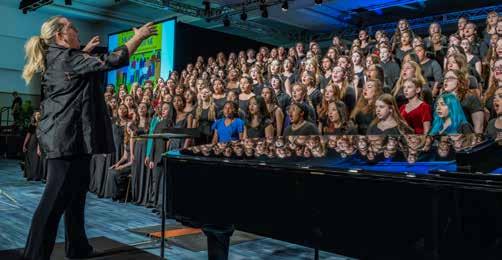
Ticket Frequently Asked Questions
Do I get free tickets for my students’ family members to attend the concert? No.
Can I get free tickets to any concerts?
Can I buy extra tickets anytime?
Can I buy tickets on site at the Marriott?

Does my young child need to buy a ticket?
No. Registered attendees (directors, chaperones, students) are allowed admission to concerts with their name badge, so no ticket is necessary. Attendees that are not registered for the conference (parents, family, etc.) must purchase tickets.
Anyone can purchase tickets online. Electronic tickets will go on sale in September, and sales will close 30 minutes after each concert’s scheduled start time. Paper tickets will be sold at the FMEA Registration Desk during its regular hours Thursday through Saturday.
No, on-site paper ticket sales are only available at Tampa Convention Center in the secondfloor registration area. If your concert is in the Marriott Water Street, you must prepurchase your tickets online or make plans to first visit the convention center to buy tickets and then walk over to the Marriott.
Everyone who will be taking up a seat will need a ticket. Babies that are being held by a parent or sitting on a parent’s lap for the duration of the concert are welcome without a ticket, but children who are old enough to sit in their own seat will need a ticket.

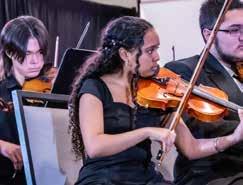
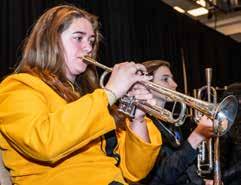
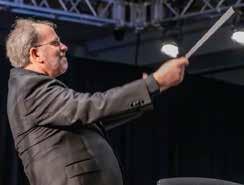
All-State Ticket Policy
1. Registered (BADGED) attendees do not require tickets to attend any all-state concert. This includes directors/ members, directors’ non-teaching spouses, performing all-state students, registered chaperones, collegiate student members, retired members, and VIP guests that you entered as part of your conference registration.
2. All nonregistered (NONBADGED) attendees (parents, family members, guests, etc.) are required to purchase tickets for any all-state concert they wish to attend.
3. There are no “free” or “allotted” tickets. All concert attendees must either wear their conference badge or purchase a ticket.
4. Tickets will be electronic and sold online utilizing a mobile-friendly website. The link will be available on the conference website well in advance of the conference, and directors are encouraged to share the link with all of their all-state students and their parents or guardians. On-site at the conference, the links and QR codes will be posted on signs in the venue so attendees may purchase tickets using their smartphones. Anyone who wishes to attend a concert can purchase an electronic ticket online anytime up until 30 minutes after the concert’s published start time
5. There is no longer a need for directors to pre-purchase any tickets for their students or their families. Instead, they should direct the student and their family to the online ticket sales website. Any directors who still wish to purchase tickets should take care to correctly enter the names and email addresses of the people who will be using the tickets into the online sales portal, or transfer the tickets to those who will be using the tickets using their correct name and email address in the online ticket sales portal.
6. Paper tickets will be on sale at the FMEA registration desk on site at the conference for attendees who would like to pay by cash or who do not want to use electronic tickets. Paper ticket sales for all-state concerts will begin
on Thursday morning and continue Friday and Saturday at the FMEA registration desk. There is no requirement that the director or any other registered attendee be the person purchasing these tickets. If a concert starts after the registration desk is closed, only electronic tickets will continue to be sold before that concert. No tickets will be available for sale at the Marriott. To attend a concert at the Marriott Water Street, you must pre-purchase electronic tickets online or plan to visit the Tampa Convention Center’s second floor to purchase your tickets before walking to the Marriott.
7. All ticket sales are final. There are no refunds for any concert tickets. Tickets may be transferred or exchanged using the online ticket sales portal only.
8. For entrance, ticket, and concert purposes, a concert is defined as the pair or group of ensembles that are performing in the same venue in a common, defined block of time. An example of a “concert” for purposes of entrance and ticketing would be the 5:30 pm concert that features both the Treble Chorus and Mixed Chorus, or the 2:30 pm concert that features the Middle, Concert, and Symphonic Bands.
Concert Re-Entry Procedure
Once a ticket’s barcode is scanned to gain entry, that ticket is marked as “used” and will no longer be eligible for another entry into the concert. Attendees who need to exit and re-enter the concert should be prepared to show their ticket and a photo I.D. to confirm they are the ticket owner to gain re-entry.
All-Ticket Sales are Final. No Refunds.
Please make sure you know the exact name of the all-state ensemble for which you need tickets before approaching the ticket sales window. Exchanges may only be made through the online portal.
Conference Hotels
FMEA has contracted with several Tampa hotels to provide you with the best rates possible.
Hotel Policies
w A maximum of five (5) guest rooms may be reserved per name/credit card.
w Directors should try to reserve rooms for all-state students and chaperones in the hotel where they are rehearsing.
w FMEA is not offering a housing bureau service. All participants MUST reserve online or call the hotel directly to secure reservations.
w Room blocks will open on Saturday, September 27, at 9:00 am Eastern Time. The hotels will be listed online at that time, along with the reservation links and phone numbers for each hotel.
w If calling, be sure to request the “Florida Music Education Association” room block rate and confirm the guest room rate posted online.
w Credit cards are required for online reservations, and the credit card name must match the name on the reservation.
w If paying by check, reservations must be made over the phone, and a check for the full amount must be mailed directly to the hotel to arrive no later than December 15.
w You do not need to register for the conference before reserving your hotel rooms, but this is something we are considering for future conferences.
w Each hotel will have contract terms, such as parking charges, etc., on its reservation link.
Hotel Frequently Asked Questions
Why are the FMEA hotels so expensive?
Why is it so hard to get a room?
Why don’t you wait and open the hotel block after all-state auditions are released?
I tried calling, but it was busy or they put me on hold forever.
Is there a cancellation fee?
Someone at the hotel told me that cancelled rooms don’t go back into the FMEA block, and they are sold at full price instead. Is that true?
The price on the hotel’s booking page doesn’t match the price listed on the FMEA’s hotel page.

The prices we contract with the hotels are much lower than their standard room rates during the same dates. In many cases, it is less than half their normal rates.
When the blocks first open, everyone tries to get as many rooms as they can in case they need them for all-state students and chaperones, so they fill up very fast. If you wait until after the all-state results come out, many people will have cancelled their rooms and it’s much easier for everyone else to get a reservation.
Our hotel partners are uncomfortable waiting until we are so close to the start of the conference to book room reservations.
We recommend booking online instead. Otherwise, try again in early November after the all-state results are released. Many people will cancel rooms they no longer need if their students aren’t accepted.
No, as long as you cancel all the rooms you no longer need by the listed cancellation deadline, you will not be charged any type of cancellation fee. After the cancellation deadline, a deposit of one night per room in your reservation will be charged to your credit card, and that deposit is nonrefundable.
Only after December 15. Before that date, all the cancelled hotel rooms in the FMEA blocks will be returned to the FMEA blocks and can be reserved by other FMEA conference attendees at the low FMEA rate.
If the FMEA block is full at that hotel, they may be showing you available full-price rooms outside of the FMEA block. Try again in November after all-state results come out to see if anyone cancelled rooms in the FMEA block.


We urge any guest holding surplus reservations/rooms to cancel the excess reservation(s) as soon as possible and no later than 5 pm on November 3, 2025, and you must secure a cancellation confirmation number. This courtesy will make surplus rooms available to other FMEA members and conference attendees.
Nonrefundable Deposit
On November 11, each room reserved and not cancelled by November 3 will be charged a nonrefundable deposit in the amount of the posted rate for one night plus tax. It will be charged to the credit card used to secure the reservation. Invalid credit cards risk reservation cancellation.
Transportation Not Provided
Not all hotels are within walking distance of the convention center. FMEA does not provide any transportation. Transportation and PARKING are the responsibility of each attendee. Directors are asked to share this with their chaperones and students.
If Hotels Are Full
Every year, the hotel blocks fill up almost immediately upon opening due to teachers overestimating how many rooms they will need for all-state students and chaperones. They cancel the rooms they don’t need after the audition results are released (late October and early November).
w Try again in late October or early November after all-state results are released and teachers cancel rooms for students who don’t need them.
w Try again after the cancellation deadline. All cancelled rooms will return to the FMEA blocks until December 15.
w Please do not reserve a room outside of the FMEA blocks! We must fill most of our allotted room blocks to receive discounts for the ballrooms we use for all-state rehearsals. If we do not meet our required minimum number of hotel nights sold, we will need to raise conference registration rates to compensate for the added cost of the rehearsal space.
w If the price listed on the hotel’s website is not the same as the price listed on the FMEA hotel page, the FMEA block for that hotel may be full, and they are showing you fullprice rooms instead. Try again in November after all-state results come out.
Beware of Room Block Scams
The hotels listed on the FMEA Hotel List are the only official housing providers for the FMEA conference. The Florida Music Education Association is not affiliated with any third-party hotel brokers. If you are contacted by someone claiming to represent the FMEA offering discounted housing or alternative housing arrangements, be aware it is a scam. If you receive such communication, please contact Val Anderson at val@FMEA.org. The only way to ensure you have a valid hotel reservation is to book your room with one of the listed hotels and mention group code FMEA, or if you are an exhibitor, please use the Hotel Reservation Form on the Exhibitor Information page.
Credit Card Scams at the Hotels
Imagine this scenario: You arrive at your hotel and check in at the front desk. When checking in, you give the front desk your credit card information (for all the charges for your room or just incidentals). You get to your room and settle in. Someone calls the front desk and asks for room 620 (which happens to be your room). Your phone rings in your room. You answer, and the person on the other end says the following: “This is the front desk. When checking in, we came across a problem with your charge card information. Please re-read me your credit card number and verify the three-digit number on the reverse side of your charge card.”
Not thinking anything unusual, you might give this person your information since the call seems to come from the front desk. But actually, it is a scam. Someone is calling from someplace other than the hotel’s front desk. They ask for a random room number, and then, sounding very professional, they ask you for credit card information and address information. They are so smooth, you will think you are talking to a hotel employee at the front desk.
If you ever encounter this problem, tell the caller you will come down to the front desk to clear up any problems. Then, go to the front desk and ask if there was a problem. If there was none, inform the manager of the hotel that someone acting like a front desk employee called to scam you of your credit card information. This type of scam may also happen with room service charges. Be alert!


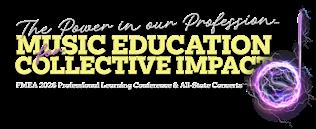
All-State Concert Band
Concert –
Tampa Convention Center, Ballroom A
Saturday, January 17, 2026 ............2:30pm
Reseating Auditions
Hotel Tampa Riverwalk, Riverwalk Ballroom
Thursday.................................... 9am-11am
Rehearsals – Hotel Tampa Riverwalk, Riverwalk Ballroom
Thursday 1pm-5pm
Thursday 7pm-9:30pm
Friday 8:30am-11:30am
Friday .......................................... 1pm-5pm
All-State Concert Chorus
Concert –
Tampa Convention Center, Ballroom A
Saturday, January 17, 2026 11am
Rehearsals –
Tampa Convention Center, Room 114
Thursday 8am-8:30am, Registration
Thursday 8:30am-11:30am
Thursday 1:30pm-4:30pm
Thursday 6:30pm-9pm
Friday 8:30am-11:30am
Friday ..................................... 1:30pm-4pm
All-State Concert Orchestra
Concert –
Tampa Convention Center, Ballroom A
Saturday, January 17, 2026 6:30pm
Reseating Auditions – Marriott Water Street, Florida Ballroom, Salons 5-6
Thursday 7:30am-8am, Registration
Thursday 8am-11:30am
Rehearsals – Marriott Water Street, Florida Ballroom, Salons 5-6
Thursday........... 9am-9:30am, Registration
Thursday 9:30am-11:30am
Thursday 1pm-5pm
Thursday..................................... 7pm-9pm
Friday 8:30am-11:30am
Friday 1pm-5pm
All-State Rehearsals
All-State Elementary Chorus Concert –
Tampa Convention Center, Ballroom A
Thursday, January 15, 2026 .......... 1:30 pm
Rehearsals –
Tampa Convention Center, Room 111
Wednesday 12noon-1pm, Registration
Wednesday 1pm-6pm
Thursday.......................... 7:45am-12:45pm
All-State Elementary Orff Ensemble
Concert –
Tampa Convention Center, Ballroom A
Friday, January 16, 2026 1pm
Rehearsals – Tampa Convention Center, West Hall B
Thursday 10am-11am, Registration
Thursday 11am-6pm
Friday .................................... 8am-11:30am
All-State High School Guitar Ensemble Concert –
Marriott Water Street, Grand Ballroom
Thursday, January 15, 2026 12:30pm Rehearsals
Tuesday 7pm-9pm
Marriott Water Street, Meeting Room 10
Wednesday............................ 8:30am-5pm
Marriott Water Street, Meeting Room 8
Thursday 8:30am-10:30am
Marriott Water Street, Grand Ballroom
Thursday 10:30am-11:30am
Marriott Water Street, Meeting Room 5
All-State High School Jazz Band
Concert –
Marriott Water Street, Grand Ballroom
Friday, January 16, 2026 8:30pm
Rehearsals –
Tampa Convention Center, Room 407
Wednesday 2pm-5:30pm
Wednesday 7pm-9pm
Thursday.......................... 8:30am-11:30am
Thursday 1pm-5pm
Friday 8:30am-12noon
All-State Intercollegiate Band
Concert –
Marriott Water Street, Grand Ballroom
Friday, January 16, 2026 4pm
Rehearsals – Barrymore Hotel Tampa Riverwalk, Crown Ballroom
Thursday 8am-9am, Registration
Thursday 9am-11:30am
Thursday............................... 1pm-4:30pm
Thursday 6pm-9pm
Friday 8am-12noon
All-State Middle School Band
Concert –
Tampa Convention Center, Ballroom A
Saturday, January 17, 2026 ............2:30pm
Reseating Auditions – Hilton Tampa Downtown, Palma Ceia Ballroom
Thursday 9am-11am
Rehearsals – Hilton Tampa Downtown, Palma Ceia Ballroom
Thursday 1pm-5pm
Thursday 7pm-9pm
Friday 8:30am-11:30am
Friday 2pm-5:30pm
All-State Middle School
Guitar Ensemble
Concert –
Marriott Water Street, Grand Ballroom
Thursday, January 15, 2026 ......... 12:30pm Rehearsals
Tuesday 7pm-9pm
Marriott Water Street, Meeting Room 8
Wednesday 8:30am-5pm
Marriott Water Street, Meeting Room 5
Thursday..........................8:30am-10:30am
Marriott Water Street, Meeting Room 5
Thursday 10:30am-11:30am
Marriott Water Street, Grand Ballroom

All-State Rehearsals

All-State Middle School
Jazz Band
Concert –
Marriott Water Street, Grand Ballroom
Friday, January 16, 2026 7:30pm
Rehearsals –
Westin Tampa Waterside, Conch Room
Wednesday 2pm-5:30pm
Wednesday 7pm-9pm
Thursday.......................... 8:30am-11:30am
Thursday 1pm-5pm
Friday 8:30am-12noon
All-State Middle School
Mixed Chorus
Concert –
Tampa Convention Center, Ballroom A
Friday, January 16, 2026 ................5:30pm
Rehearsals – Hilton Tampa Downtown, Bayshore Ballroom 1-3
Thursday 11am-11:30am, Registration
Thursday 11:30am-1:30pm
Thursday..................................... 3pm-5pm
Thursday 6:30pm-8:30pm
Friday 8:30am-11:15am
Friday 12:45pm-2:45pm
All-State Middle School
Orchestra
Concert –
Tampa Convention Center, Ballroom A
Saturday, January 17, 2026 ............6:30pm
Reseating Auditions –
Marriott Water Street, Meeting Room 8
Thursday 7:30am-8am, Registration
Thursday 8am-11:30am
Rehearsals –
Marriott Water Street, Meeting Room 8
Thursday..................................... 1pm-5pm
Thursday 7pm-9pm
Friday 8:30am-11:30am
Friday 1pm-5pm
All-State Middle School
Treble Chorus
Concert –
Tampa Convention Center, Ballroom A
Friday, January 16, 2026 5:30pm
Rehearsals – Hilton Tampa Downtown, Bayshore Ballroom 5-7
Thursday 10:30am-11am, Registration
Thursday............................... 11am-1:15pm Thursday 2:45pm-4:45pm Thursday 6:15pm-8:15pm
Friday ............................... 8:45am-11:30am
Friday 1pm-3pm
All-State Popular Music
Collective
Concert –
Marriott Water Street, Grand Ballroom
Thursday, January 15, 2026 6pm
Rehearsal –
Tampa Convention Center, Room 403 Wednesday 8am-6pm
All-State Reading Chorus
Concert –
Tampa Convention Center, Ballroom A Saturday, January 17, 2026 ............8:45am
Rehearsals – Embassy Suites
Downtown, Gandy Meeting Room
Thursday........... 8am-8:30am, Registration Thursday 8:30am-11:30am Thursday 1:30pm-4:30pm
Thursday............................... 6:30pm-9pm Friday 8:30am-11:30am Friday 1:30pm-4pm
Friday ..................................4:15pm-5:15pm Tampa Convention Center, Room 120
All-State SSAA Chorus
Concert –
Tampa Convention Center, Ballroom A
Friday, January 16, 2026 7:30pm
Rehearsals – Westin Tampa Waterside, Oasis Ballroom
Thursday 8am-8:30am, Registration Thursday 8:30am-11:30am Thursday 1:30pm-4:30pm Thursday 6:30pm-9pm Friday 8:30am-11:30am Friday 1:30pm-4pm
All-State Symphonic Band
Concert –
Tampa Convention Center, Ballroom A Saturday, January 17, 2026 2:30pm
Reseating Auditions –
Tampa Convention Center, Room 122 Thursday..........................8:30am-10:30am
Rehearsals –
Tampa Convention Center, Room 122 Thursday 12:30pm-4:30pm Thursday 6:30pm-9pm Friday 8:30am-11:30am Friday 1pm-5pm
All-State Symphonic Orchestra
Concert –
Tampa Convention Center, Ballroom A Saturday, January 17, 2026 6:30pm
Reseating Auditions –
Tampa Convention Center, Room 124
Thursday 8am-8:30am, Registration Thursday.......................... 8:30am-11:30am
Rehearsals –
Tampa Convention Center, Room 124 Thursday 8:30am-11:30am Thursday 1pm-5pm Thursday..................................... 7pm-9pm
Friday 8:30am-11:30am Friday 1pm-5pm
Continued on page 21
How do I get to the conference? Making your case to attend the 2026 FMEA Professional Learning Conference
GGetting approval to attend the Florida Music Education Association Professional Learning Conference may require developing a proposal. Due to tight budgets in today’s economy, school principals and districts carefully scrutinize requests to attend professional learning. That does not mean you should not give it your best effort by showing your administrators how your attendance will benefit the students in your school. Rather than assuming your administrators are aware of the critical importance of you professionally benefitting from content-specific sessions, consider submitting a formal proposal. Through this proposal, you can demonstrate how your participation directly relates to the strategies and the objectives of your school (including those beyond the classroom). This will allow you to articulate the need for your continuing education and how it will benefit your students, your school, and you.
Develop Your Case
w Write down three of the most important goals and strategies being addressed in your school’s plan.
w Think about how you personally contribute to those three goals and strategies. How does your work as a music educator affect the overall mission of your school? Make a list of your personal contributions to your school’s goals and strategies.
w Review the conference’s professional learning schedule to better understand how the information provided will support your school’s goals. Mark meetings that relate to your list of personal contributions to the attainment of those goals and strategies,
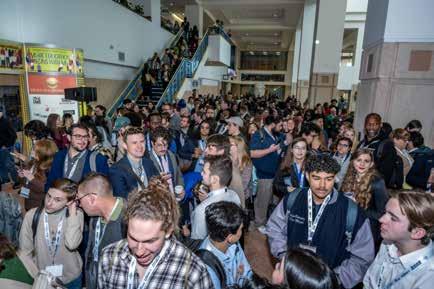
and make note of the clinicians and others you will be able to observe and/or with whom you will be able to interact while at the conference. List the high-quality performances you will observe and from which you will learn. You can download the conference app from the FMEA’s website and bookmark your sessions.
w Write down your case for how attending the FMEA Professional Learning Conference and meeting the people there will help you contribute to your school’s goals and strategies, and use this case with your administrators when making your request to attend the conference.
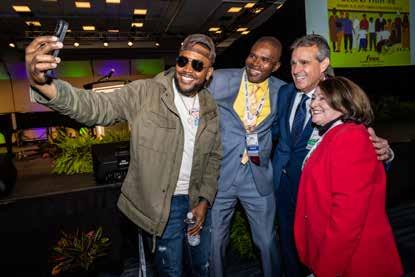
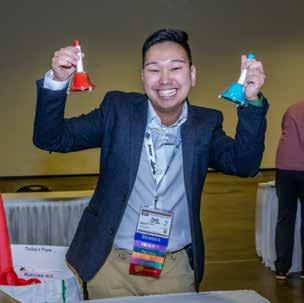
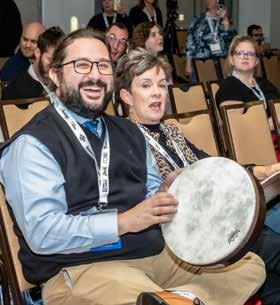
When you create your proposal, in addition to providing a summary of the funding you will need, detail your case for attending. List your school’s goals, download the conference schedule, list the sessions and the clinicians and presenters who will be there, and list the specific sessions you plan to attend. Also, list the performing groups you will have the opportunity to observe during rehearsals with national clinicians as well as the performances by these well-known conductors (from whom you can gain programming and conducting ideas). Additionally, let your administrators know that this conference has more than 10,000 teachers, administrators, students, and parents in attendance, the second largest music education conference in the nation.
Finally, ask your administrators to support you to attend the FMEA Professional Learning Conference in Tampa, Florida, January 14–17, 2026.
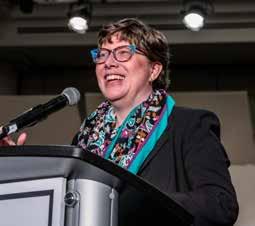

All-State Rehearsals

Continued from page 19
All-State TTBB Chorus
Concert –
Tampa Convention Center, Ballroom A
Saturday, January 17, 2026 ...........8:45 am
Rehearsals – Embassy Suites Downtown, Bayside Ballroom
Thursday........... 8am-8:30am, Registration
Thursday 8:30am-11:30am
Thursday 1:30pm-4:30pm
Thursday................................ 6:30pm-9pm
Friday 8:30am-11:30am
Friday 1:30pm-4:30pm
High School Honors Band
Concert –
Marriott Water Street, Grand Ballroom
Saturday, January 17, 2026 ............... 11am
Reseating Auditions – Hotel Tampa Riverwalk, Bayshore Ballroom
Thursday 9am-11am
Rehearsals – Hotel Tampa Riverwalk, Bayshore Ballroom
Thursday 1pm-5pm
Thursday 7pm-9:30pm
Friday 8:30am-11:30am
Friday 2pm-5pm
High School Honors Big Band
Concert –
Marriott Water Street, Grand Ballroom
Friday, January 16, 2026 .................... 8pm
Rehearsals – Embassy Suites Tampa Airport Westshore, Cypress Room
Wednesday 2pm-5:30pm
Wednesday 7pm-9pm
Thursday 8:30am-11:30am
Thursday 1pm-5pm
Friday 8:30am-12noon
High School Honors Orchestra
Concert –
Marriott Water Street, Grand Ballroom
Saturday, January 17, 2026 2:30pm
Rehearsals – Embassy Suites
Downtown, Skyway Room
Thursday 8am-8:30am, Registration Thursday.......................... 8:30am-11:30am Thursday 1pm-5pm
Thursday 7pm-9pm
Friday ............................... 8:30am-11:30am Friday 1pm-5pm
Middle School Honors Band
Concert –
Marriott Water Street, Grand Ballroom
Saturday, January 17, 2026 ............... 11am
Reseating Auditions – Hilton Tampa Downtown, Esplanade Suite Thursday 9am-11am
Rehearsals – Hilton Tampa Downtown, Esplanade Suite
Thursday 1pm-5pm Thursday 7pm-9:30pm Friday 8:30am-11:30am Friday 2pm-5pm
Middle School Honors Orchestra
Concert –
Marriott Water Street, Grand Ballroom
Saturday, January 17, 2026 2:30pm
Rehearsals – Hotel Tampa Riverwalk, Riverview Room
Thursday 8am-8:30am, Registration Thursday 8:30am-11:30am Thursday 1pm-5pm Thursday 7pm-9pm Friday 8:30am-11:30am Friday .......................................... 1pm-5pm

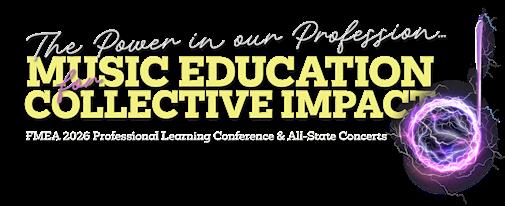
Student Leadership
Jameyel “J. Dash” Johnson
Jameyel “J. Dash” Johnson is a classically trained piano prodigy turned multi-genre innovator whose career has seamlessly bridged the worlds of hip-hop, jazz, blues, classical, and cutting-edge digital media. His teenage years were spent mastering the energy of live performance in blues and jazz bands, foreshadowing the eclectic artistry that defines his work today.
A rapper, songwriter, producer, mixer, and multiinstrumentalist, J. Dash is also a graduate of the University of Florida with a degree in computer science—a reflection of his lifelong pursuit of curiosity and mastery. “When I come across something I like, I want to learn everything about it and really understand it,” he says, a philosophy that fuels his cross-disciplinary creativity.
J. Dash first captured global attention with his viral smash “WOP (With Out Prejudice),” a pulse-pounding dance hit that soared on the iTunes Top 100 HipHop Charts, sold more than 100,000 downloads before radio play, and racked up millions of views on YouTube, including a video with longtime collaborator and friend Flo Rida. A digital pioneer, he also launched the first-ever YouTube Street Team, harnessing fan power to create a grassroots marketing movement that anticipated the modern influencer era.

Most recently, J. Dash produced music for a Golden Buzzer finalist on America’s Got Talent, with their breakout song “Feels So Good to Be You” amassing 2 million-plus streams and counting. Beyond his work in the studio, he continues to shape the arts as chair of programming and marketing on the board of the Long Center for Performing Arts in Austin, Texas. He is also the founder of Twylight Zone, an innovative arts discovery platform dedicated to spotlighting creativity and culture.
With a career that defies categories, J. Dash embodies the spirit of reinvention—an artist, innovator, and leader whose work is equal parts vision, craft, and impact.
Chairperson’s MESSAGE

Fred Schiff

Partners and Students and Stars, Oh My!
Packyour bags for the 2026 FMEA Professional Development Conference because we have reimagined the look and feel of the conference. It starts with Partners doing what they do best, and that’s helping our members.
Grab Your Guitars!
Working closely with FMEA Secondary General Music Chairperson Ed Prasse, FCAP was able to acquire the donation of 25 brand new Yamaha classical guitars to use for educational sessions at the conference. The best part is that FMEA will be donating those guitars to programs after the show! Shoutout to Heather Mansell Schroeder, Yamaha’s segment marketing manager, for their generosity.
The Star Aligns!
Assisting the Student Conference Experience’s Dr. Michael Antmann and Charlene Cannon, FCAP is happy to announce that Summer Camargo, The Saturday Night Live Band’s trumpet player and former FMEA All-State Jazz Band member, will be featured as the guest headliner at the Student Conference Experience. Students will witness a live one-on-one conversation as we discuss her musical life and journey and hear her perform during that interview. Of course, there will be plenty of time for “selfies” after the event.
This is an incredible opportunity for high school students to learn from a contemporary who is navigating the beginning of a stellar music career. High school teachers, make sure you sign up your students before all the spots are taken. Learn more HERE. And for everyone else, Summer will be performing at the FMEA Opening Session.
As a Bach Performing Trumpet Artist, Summer’s appearance is fully underwritten by our Gold Partner, Conn-Selmer. Thank you, Conn-Selmer!
Make Some Noise!
This year, Gold Academic Partners (GAP) and U.S. Military (USM) exhibitors will have the opportunity to showcase their talents on the new Exhibition Hall Stage, located at the east end of the hall. GAP (students and/or faculty) and USM groups not larger than 10 musicians can apply for a 20-minute performance on Thursday or Friday and will be featured in the conference program. This is a new chance for members to check out the amazing things going on in your schools or military branch.
Gold Academic Partners or military ensembles that are interested in taking advantage of this opportunity should email exhibits@FMEA.org with the name of the ensemble, along with the name and email address of the director.
He’s Back!
Jameyel “J. Dash” Johnson, multi-platinum producer, songwriter, film composer, Jacksonville native, and University of Florida graduate, will headline the “reimagined” Student Leadership Workshop for high schoolers and collegiates. After last year’s overwhelming reaction to our one-on-one conversation at the Student Conference Experience, sponsored by the National Association of Music Merchants (NAMM), it was obvious that J. Dash has more to share about life and music with Florida’s student leaders.
Sign up your students for the Student Leadership Workshop today. Learn more HERE
See you at the Conference,
Fred Schiff
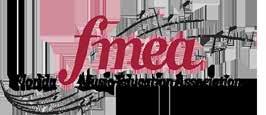

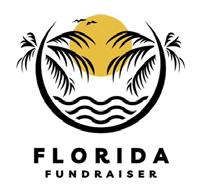

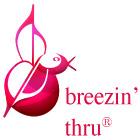
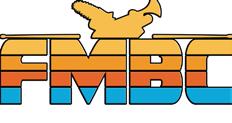



Custom Recording Service, Inc. Music & Arts
Partners as of September 5, 2025.
*Please visit FMEA.org/partners for partnership details or call 850-878-6844.
Please take time to thank and support our 2025-2026 Corporate Partners.
PARTNERS

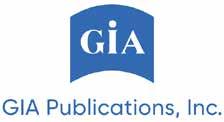


Hal Leonard
Head’s House of Music
J.W. Pepper & Son, Inc.
Music is Elementary
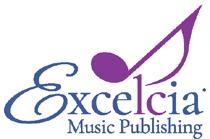

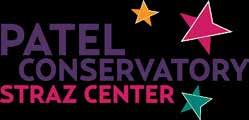

BRONZE PARTNERS
MusicFirst PACE Travel
Sight Reading Factory West Music Company

Please take time to thank and support our 2025-2026 Academic Partners.
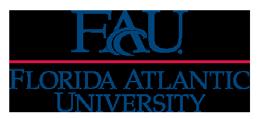

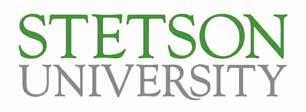

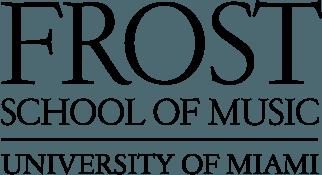

The College of Idaho
BRONZE PARTNERS
Florida Gulf Coast University
Florida Southern College Rollins College University of North Florida
Partners as of September 5, 2025.
*Please visit FMEA.org/partners for partnership details or call 850-878-6844.

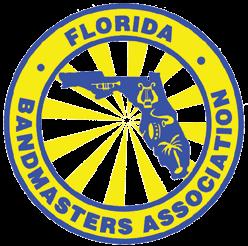
FLORIDA BANDMASTERS ASSOCIATION
34th Hall of Fame Weekend
The 34th Florida Bandmasters Association Hall of Fame weekend is scheduled for November 15–16, 2025, on the campus of Stetson University in DeLand, Florida. The weekend includes a banquet and two concerts to honor the Roll of Distinction inductees, Dr. Patrick Dunnigan (Florida State University) and Fred Schiff (All County Music Store), and the Hall of Fame inductees, Richard Davenport (former director at Chipley High School) and Melvin Maxwell (retired, Naples High School).
On Saturday, November 15, at 7:30 pm, the weekend activities begin with the Roll of Distinction Concert featuring the Southern Winds, Dr. Douglas Phillips, conductor. A reception follows the concert in the Marshal and Vera Lea Rinker Welcome Center on the Stetson campus.
The Hall of Fame banquet is scheduled for 12 noon, Sunday, November 16, in the Stetson Room located in the Carlton Union Building. While the banquet is open to the public, reservations are required by November 1. Contact Dr. Chandler Wilson for reservations and information ( cwilson18@stetson.edu).
The Hall of Fame Concert is scheduled for Sunday, November 16, at 4 pm, featuring the Stetson University Symphonic Band, Dr. Chandler Wilson, conductor. A reception follows the concert in the Marshall and Vera Lea Rinker Welcome Center.
Both concerts will be held in the Elizabeth Hall located in Lee Chapel. These two concerts are free and open to the public. Both concerts will also be livestreamed (click HERE or see the FBA website under Awards-Hall of Fame for the link).
The Hampton Inn and Suites DeLand (20 Summit Oak Place, DeLand, Florida 32720) is holding a room block of rooms until October 15, 2025, at discounted rates of $169 per night (Friday and Saturday) and $120 per night (Sunday). To make a reservation online, click HERE or visit the FBA website under Awards-Hall of Fame and use the link provided. Phone reservations can be made by calling directly at (386) 279-7808 and asking for the FBA (Florida Bandmasters Association) discounted rate.
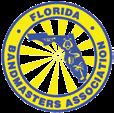

Melvin Maxwell
FLORIDA BANDMASTERS ASSOCIATION
HALL OF FAME 2025 INDUCTEE
Melvin Maxwell grew up in Immokalee, Florida, and attended the segregated Bethune School. His band teacher, Mr. Joseph Walden—a graduate of Florida A & M University—inspired him to become a band director. When schools integrated in 1967, he attended Immokalee High School for 10th and 11th grades, then transferred to Naples High School, where he graduated in 1970. His band director at NHS, Mr. Jerome Edwards (2012 FBA Hall of Fame inductee), became a guiding force and the greatest influence on his career.
Mr. Maxwell attended Florida A & M University, where he was a four-year member of the Marching “100,” the percussion ensemble, and the symphonic band. He won first place in the FAMU conducting competition under the instruction of Dr. Julian E. White (2022 FBA Roll of Distinction honoree). He interned at Augusta Raa Middle School with Mr. Hamilton Hollins and graduated magna cum laude in 1974. Twenty-five years later, he earned his master’s degree from the University of Southern Mississippi in Hattiesburg.
Mr. Maxwell began his teaching career in fall 1974 as assistant band director at Lely High School in Naples. After two years, he became the head director and transitioned the band’s style from “Big 10” to a blend of HBCU and DCI Corps. The “Trojan” band became a unique presence in Southwest Florida and was featured in numerous local and national publications. His marching and symphonic bands consistently earned district FBA superior ratings, along with several superior ratings at state MPA.
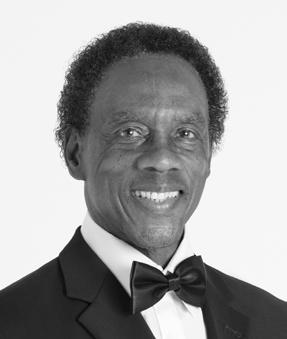
In 1988, he left Lely High School and taught at Golden Gate Middle School, where his band earned superior ratings. He then taught at Coral Springs High School in Broward County (1989–90), where the marching, concert, and jazz bands earned district superior ratings. The symphonic band earned its first straight superior concert rating at state MPA. The marching band also performed for the Miami Dolphins, the 1990 Orange Bowl Parade, and won Grand Champion at the Dixie Classic Azalea Festival in Richmond, Virginia. After Coral Springs, he taught strings and keyboard at Ft. Myers Middle School for a year, then band at Estero High School, earning a superior rating at the marching band MPA.
Mr. Maxwell returned to Naples in 1992 to succeed his mentor, Jerome Edwards, who retired after 27 years. Mr. Maxwell continued the school’s tradition of excellence, earning FBA superior ratings in marching, concert, and jazz, along with several state MPA concert superior ratings. A point of pride shared between them: by the time of Mr. Maxwell’s retirement, the Naples High School marching band had earned 36 consecutive years of district superior ratings, and the concert band had earned 40 consecutive years.
Between 1978 and his retirement in 2009, Mr. Maxwell taught at four high schools. Every one of his marching bands—ranging in size from 50 to 240 members—earned FBA superior ratings. Three of the four also earned FBA state concert superior ratings. Remarkably, he
wrote nearly every marching band score and part by hand and by ear throughout his career. His bands performed across Mexico, England, France, and the U.S., including Virginia, Tennessee, Louisiana, Texas, and California.
He has conducted honor bands in Collier, Lee, Charlotte, Broward, Hillsborough, Dade, and Indian River counties, as well as the 1984 Florida AllState Small Schools Honor Band. He received a Summer Music Fellowship to study at Northwestern University in Evanston, Illinois—one of only 10 awarded nationally each year. He has participated in the FBA Legacy Project, served as an adjudicator for FBA concert, marching, and solo/ensemble events, and judged non-FBA marching competitions. In semi-retirement, he taught band for 11 years at The Village School of Naples and continues to serve as a guest conductor and clinician for bands across Collier and Lee counties.
Mr. Maxwell is married to Rebekah Michael and has two daughters, Natasha and Shantelle, with his former wife, Carolyn Maxwell. He extends heartfelt thanks to his family, teachers, former students, band parents, colleagues, and friends for their unwavering support throughout his career. He is deeply honored and profoundly grateful to be inducted into the FBA Hall of Fame.

Richard L. Davenport
FLORIDA BANDMASTERS ASSOCIATION
HALL OF FAME 2025 INDUCTEE
Now in his 37th year as a music educator, Richard L. Davenport currently serves as director of bands at Deane Bozeman School in Bay County, Florida. Over the course of his distinguished career, he has also led successful programs at Chipley High School, Graceville High School, and Marianna High School. After retiring from Chipley High School in 2022 following 23 years of dedicated service, he continued teaching at Wicksburg High School in Alabama and later served as assistant professor of music education and interim dean of the School of Music & Worship at the Baptist University of Florida.
Mr. Davenport holds both a BME and an MS in educational leadership from Florida State University. A life member and past president of the Florida Bandmasters Association (FBA), he remains active as an adjudicator, adjudicator trainer, and honor band clinician throughout the Southeast. His service to the FBA includes roles as district secretary, district chairperson, coordinator of the Small School All-State Honor Band, and conference facilitator. He continues to passionately mentor young band directors throughout the region.
His professional affiliations include Phi Beta Mu International Honorary Band Fraternity, the National Association for Music Education, the Florida Music Education Association, and the Southeastern United States Concert Band Clinic Board of Directors. His accolades include the prestigious FBA Oliver Hobbs Award and recognition as Washington County Teacher of the Year. He is also the founder and conductor of the Northwest Florida Community Band.
Mr. Davenport has been a lifelong servant in bi-vocational music ministry and currently serves as choir director and worship leader at Bonifay First United Methodist Church.
He and his wife, Tanya, have two children and one granddaughter. Their son, Richard, is a civil engineer married to Heather, a first-grade teacher. Their daughter, Jenny, is a senior music industry major at Troy University.

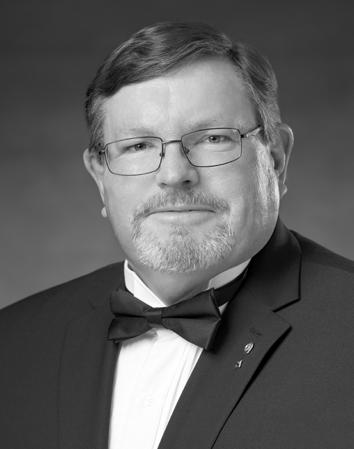


Fred Schiff
FLORIDA BANDMASTERS ASSOCIATION ROLL OF DISTINCTION 2025 INDUCTEE
Fred Schiff is the president of All County Music, a full-service school music store serving music educators and families throughout Florida. He earned his bachelor’s degree in business administration from Mercer University. Prior to purchasing All County Music, he served as vice president of the Miami-based AmeriFirst Bank and Capital Bank.
A passionate advocate for music education and a frequent public speaker, Mr. Schiff has delivered presentations at major universities, public schools, New York Stock Exchange-listed corporations, and the College of Advanced Judicial Studies.
His numerous awards and recognitions include Dealer of the Year and Best Community Retail Store by the National Association of Music Merchants (NAMM), District Partner of the Year by the Broward County School Board, the Distinguished Service Award for Music Education from the Florida Music Education Association (FMEA), and induction into Phi Mu Alpha Sinfonia’s charter class of Signature Sinfonians.
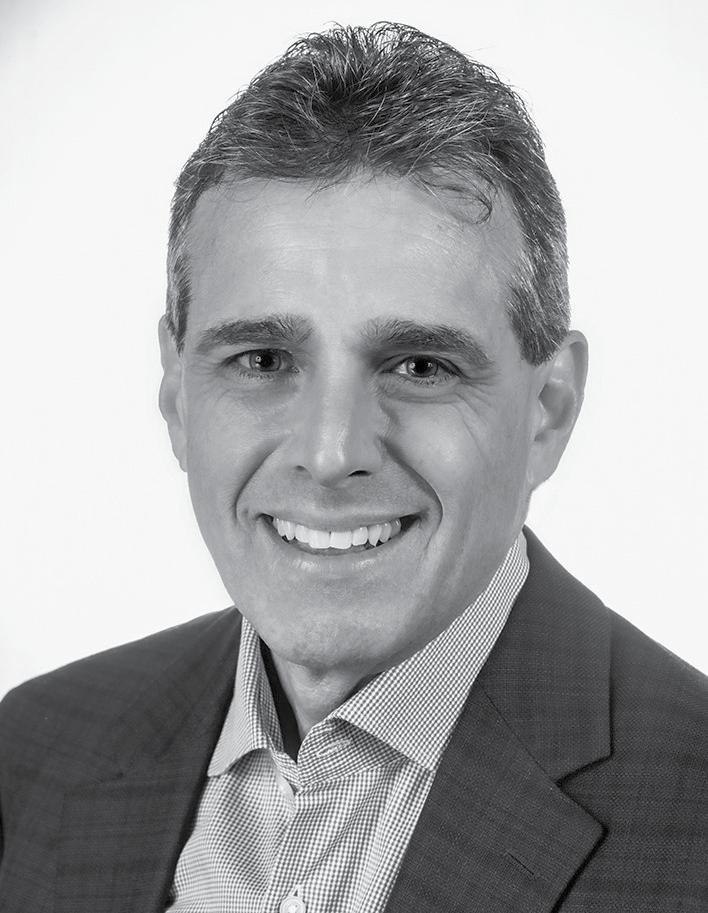
Mr. Schiff currently chairs the Florida Corporate and Academic Partnerships Committee on the FMEA Board of Directors and has served at the request of nine FMEA presidents.
As a music educator, Mr. Schiff has held numerous directing and adjudicating roles, including serving as director of the City of Sunrise Jazz Ensemble (1978–1993), director of the Broward County Band Directors’ Jazz Band, and director of the first Broward County Middle School Honor Jazz Band. He has also directed the Indian River State College Four County High School Honor Jazz Band, the Lee County High School Honor Jazz Band, and jazz bands at Stoneman Douglas High School and J. P. Taravella High School. Additionally, he has served as director of the National Association of School Music Dealers Jazz Band, adjudicator for the Space Coast Jazz Festival, and clinician for the Florida Bandmasters Association’s jazz MPA.
In addition, Mr. Schiff has led countless clinics and seminars for middle schools, high schools, and colleges across the state, including jazz band clinics, drum major training, and leadership seminars.
Mr. Schiff’s legacy reflects a lifelong commitment to music education, leadership, and service—qualities that exemplify the spirit of the Hall of Fame.

Patrick Dunnigan
FLORIDA BANDMASTERS ASSOCIATION ROLL OF DISTINCTION 2025 INDUCTEE
Patrick Dunnigan, a native of Frankfort, Kentucky, began his musical journey at Franklin County High School, playing tuba in the concert and marching bands and guitar in the jazz ensemble. He earned his BME from the University of Kentucky in 1979 and spent seven years teaching in Kentucky public schools, including positions at Jeffersontown High School and Lafayette High School.
In 1986, Dunnigan pursued graduate studies at Northwestern University, studying conducting with Mr. John P. Paynter and music education with Mr. Bennett Reimer. After earning his MM in conducting in 1987, he joined Western Michigan University as assistant director of bands, where he directed the Bronco Marching Band, conducted the concert band, and taught instrumental methods and philosophy of music education.
Dunnigan joined the Florida State University College of Music faculty in 1991 as director of the Marching Chiefs and associate director of bands. He earned his PhD in music education from the University of Texas at Austin in 1999 and was later appointed director of bands at FSU following the retirement of Dr. James Croft, eventually rising to full professor of music. Over 35 years, he has conducted every wind band at FSU and currently serves as principal conductor and music director of the University Wind Ensemble, overseeing five concert bands, a graduate conducting program, and athletic pep bands.
A nationally recognized guest conductor, adjudicator, arranger, and clinician, Dr. Dunnigan has published extensively in leading music education journals including The Instrumentalist, Music Educators Journal, Bulletin for the Council for Research in Music Education, and the Journal of Band Research His transcriptions and arrangements are performed by major university, community, and professional wind bands nationwide, including the Dallas Wind Symphony. He has presented at premier conferences, including the Midwest Clinic, the Florida Bandmasters Association, the College Band Directors National Association (CBDNA), and the World Association of Symphonic Bands and Ensembles. His textbook Marching Band Techniques was at one time the leading publication for marching band methodology. He also serves as music director for the Tallahassee Winds (an adult community band) and the

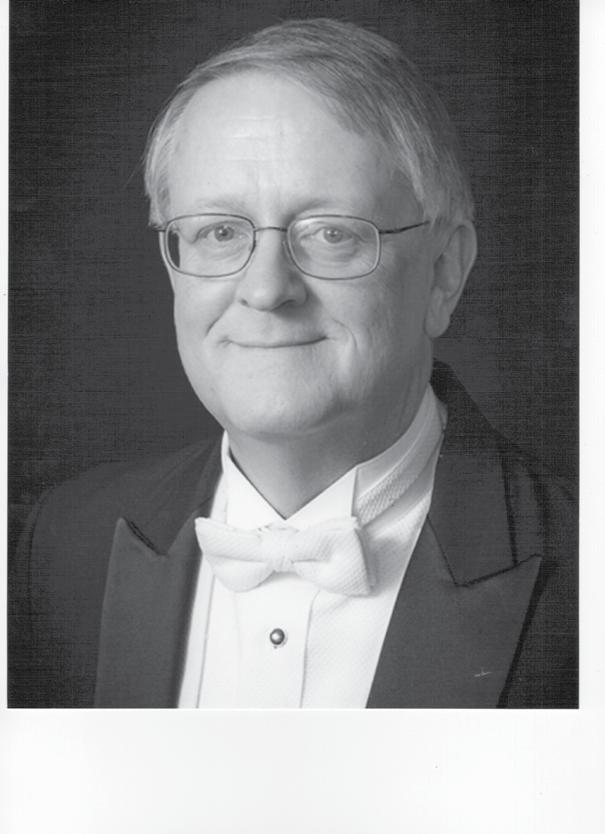
Thursday Night Music Club (an adult community jazz ensemble).
Dr. Dunnigan is an active member of the College Band Directors National Association, National Association for Music Education, Florida Music Education Association, National Band Association, Florida Bandmasters Association, and Phi Mu Alpha Sinfonia Music Fraternity. He is an honorary member of the Michigan School Band and Orchestra Association, Kappa Kappa Psi, and Tau Beta Sigma, and received the Friend of the Arts award from Sigma Alpha Iota. He was awarded the FSU Teaching Award in 2003 and 2012. In 2006, he was elected to membership in the prestigious American Bandmasters Association. He served as president of CBDNA Southern Division from 2013 to 2025 and as national president of CBDNA from 2015 to 2017. He served on the CBDNA Executive Board for a total of 14 years. His ensembles have been selected to perform at CBDNA conferences a total of five times.
FMEA Crossover Festivals 2026
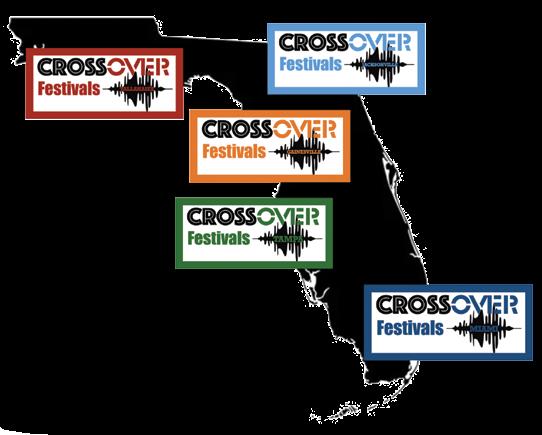
Teachers are welcome to bring their student bands to a festival experience that will celebrate their students’ achievements in the area of cover song and original song performance. Students will perform a 10-minute set of cover and original music and then have a 30-minute coaching session by a music teacher producer from the hosting institution. Students should plan on spending the day to hear other bands perform and experience the unique program of each host institution. There will be performances from university students, presentations from members of the music industry, and valuable Q&A sessions for how to make better music. All student performances will be professionally multitrack-recorded. At the end of each festival, two bands will be awarded the honor of having one of their original songs released on a special album following the Festivals.
Site Locations:
Tampa (University of South Florida): May 14–15 Tallahassee (Florida State University): May 19
General Guidelines:
1. All Florida student bands in grades K-12 are eligible to participate. Students must, however, be nominated by an FMEA member teacher.
2. Students can enter one of three divisions: elementary school (K-5), middle school (6-8), or high school (9-12).
3. This is a group festival. Groups can consist of as few as two individuals.
4. Each student can only be involved in one submission.
5. The submission deadline is 5:00 pm EDT on March 20, 2026.
Each Group Must Submit a Performance of:
1. A Cover Song. Cover songs are songs written and/ or performed by an artist who is not the student(s) performing.
2. An Original Song. Original songs are songs written and/or performed by the songwriter(s) at the festival.
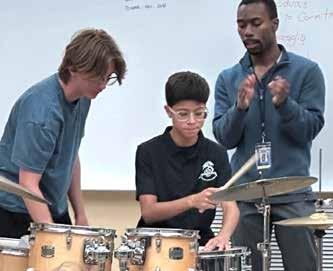
Submission Guidelines:
w Submissions can include original compositions, mashups, partner songs, re-mixes, covers, etc. Live performance pieces must be no longer than four minutes in length.
w Submissions must include both a cover song and an original song. Performances can involve any single musical style or combination of musical styles. While live performance compositions can include any combination of instruments and vocalists, they must prominently feature at least one digital instrument (computers, electric guitars, phones, electronic toys, tablets, synthesizers, midi controllers, microphones, electronic drums, loopers, etc.).
w The inclusion of other performing arts, such as movement, dance, theater, poetry, and visual art, is encouraged.
Submission Process:
FMEA member teachers may nominate as many students and/or student groups as they wish. Each nomination must include the following:
1. A video recording of a live performance of the two full pieces.
• The video should be uploaded to a video-sharing site such as YouTube, Vimeo, TeacherTube, or the composer’s or school’s/teacher’s website. Make sure it’s set so that anyone with the link can view the video. For example, in YouTube, this would be “Unlisted” but not private, and in Google Drive the sharing settings should be “anyone with the link” can view. The online application will ask for the link/URL.
• If submitting an audio recording, it should be an mp3 file. The application will ask you to upload it.
2. The online application will ask for: composer name(s) and email(s), school name(s), year(s) in school, composition title, duration, listing of instrumentation and equipment used, an analy sis of the piece’s form, one or two paragraphs describing the compositional/creative process, a listing of student performers that includes name, email, school name, year in school, and type of participation in the composi tion for each student, and links to uploaded video/audio files.
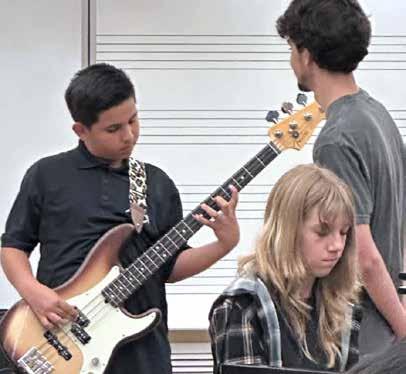
The submission deadline is 5:00pm EDT March 20, 2026. Only applications completed by this time will be considered. Students whose works are selected for performance will be notified by March 27 and will be expected to attend the event.
Payment:
No up-front payment is required to apply, but entry fees for the groups selected to participate will be $20 per student, which must be paid to FMEA before the festival date.
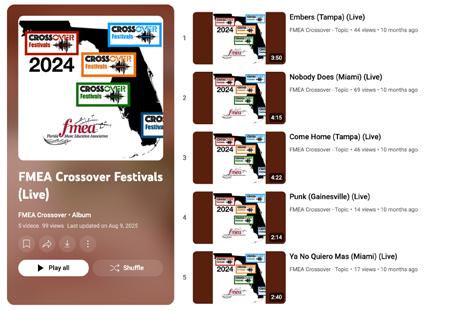

Here is a link to the 2024 Festival Album.
Pictured:
CLICK TO LISTEN

In UCF’s Music for Exceptional Learners course, undergraduate students partner with the UCF Concert Band to design an accessible concert experience for students with disabilities—transforming not just a performance, but their own professional outlook.
Creating Harmony
Empowering Future Music Educators Through Inclusive Arts

BY TERESA FAUCETTE
This past spring, I had the privilege of supporting an extraordinary course at the University of Central Florida that blends music education with the values of inclusion and accessibility. As a PhD candidate in exceptional education, I shadowed and assisted in Music for Exceptional Learners, a course offered to undergraduate music education students in UCF’s School of Performing Arts, facilitated by Dr. Christine Lapka.
My primary involvement was to provide additional insights from the perspective of an exceptional educator as the undergraduates worked through the semester, leading up to their capstone project: the Inclusive Knights concert, presented as part of UCF Celebrates the Arts.
continued on page 36

Photo by Hannah Estes, courtesy of UCF

Harmony
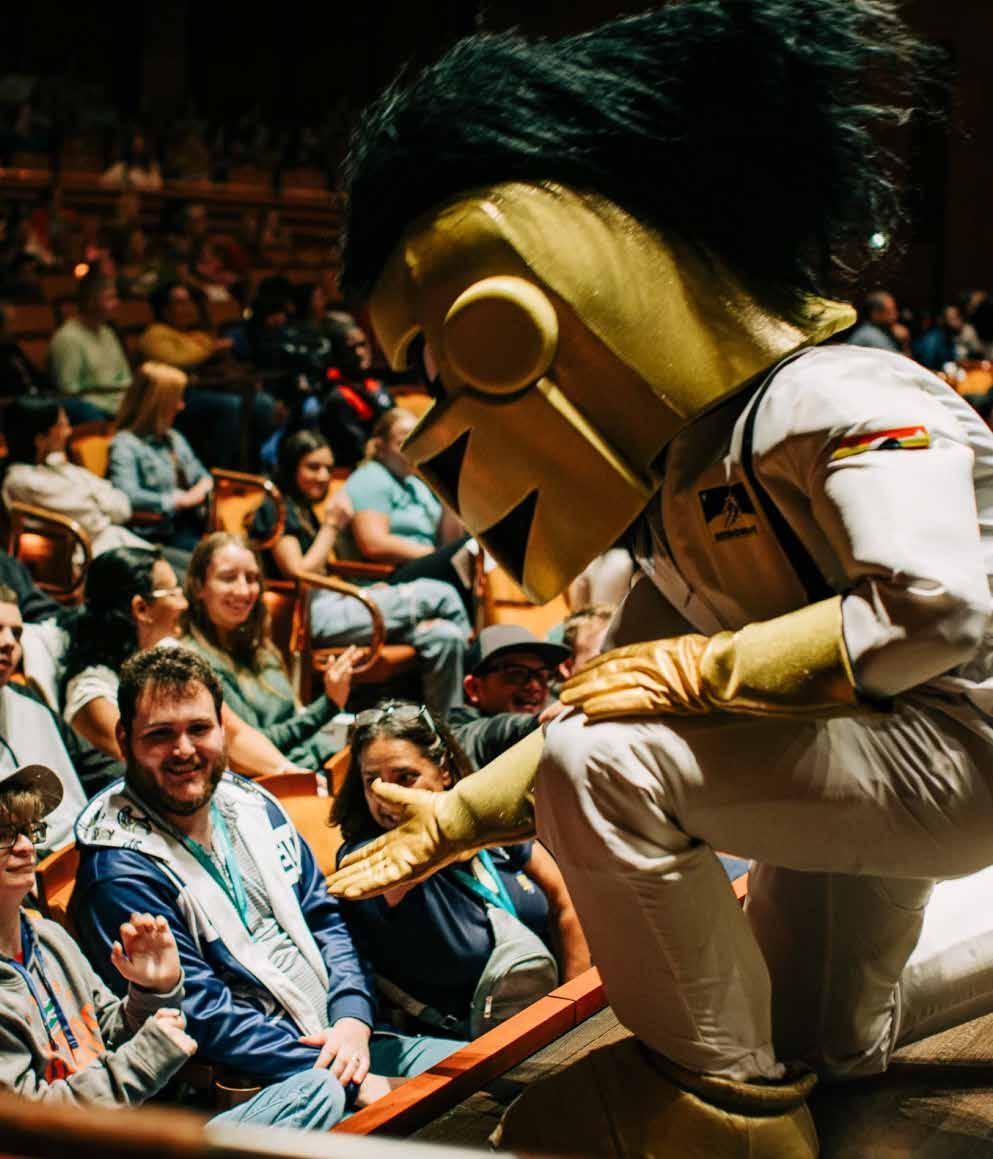
Inclusive Knights is an
of performances especially designed for
and neurodivergent communities.
evening
deaf, heard-of-hearing,
It's part of UCF Celebrates the Arts at Dr. Phillips Center for the Performing Arts.

Creating Harmony
continued from page 34
Celebrating its fourth year in 2025, this sensory-friendly performance, created in collaboration with the university’s Concert Band, welcomed students of all ages with disabilities from across Central Florida. What began as a class project evolved into a life-changing experience for the students involved, the individuals who attended, and for me personally.
Student Transformation Through the Lens of Exceptional Education
From the beginning of the semester, the undergraduate students approached the course with a blend of enthusiasm and uncertainty. Many had limited prior experience
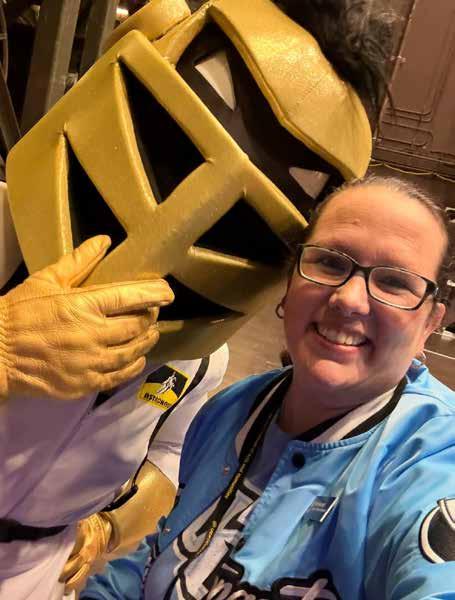

working with students with disabilities, and this aspect of concert design was a new and unfamiliar concept. As the semester progressed, they encountered the realities of adapting a musical space for varying sensory needs, restructuring audience participation to meet a range of communication needs, and designing materials that would welcome all learners into the concert experience.
Through weekly learning, discussions, collaborative planning sessions, and hands-on design work, these students began to build not just technical skills, but a deeper sense of empathy and purpose. They created social narratives, designed adaptive materials, and practiced inclusive facilitation strategies. As the performance date approached, I saw an evident shift in their confidence and understanding. They were not just planning a concert; they were preparing to make music truly accessible.
An “Out of This World” Experience
The 2025 Inclusive Knights concert theme, Out of This World, reflected the spirit of creativity and imagination that the students brought to the project. The undergraduates wrote the entire concert script themselves, crafting an interstellar narrative that guided the audience through a musical space adventure. The story was designed with clarity and pacing in mind, making it engaging and accessible for students of all ability levels.
In addition to writing the script, the students fully embraced the theme through costuming and character design. They arrived in homemade space-inspired attire—complete with astronaut suits, alien antennas, star capes, and glittery planetary props. These visual elements added a layer of fun and familiarity for the audience while helping to support attention, anticipation, and comprehension throughout the performance. Their commitment to the theme demonstrated not only creativity, but a deep understanding of how multisensory engagement can support ALL students’ access to the arts.
And who can forget Knightro, UCF’s mascot, who joined the performers on stage and energized the crowd in his very own space suit!
A Joyful and Accessible Celebration
The Inclusive Knights concert was a highlight of UCF Celebrates the Arts, welcoming more than 300 exceptional education students, teachers, and families from the surrounding region. The performance environment was designed with intention: open seating, quiet spaces,
Teresa Faucette poses with Knightro backstage at the Inclusive Knights concert, April 8, 2025. Photo courtesy of Teresa Faucette
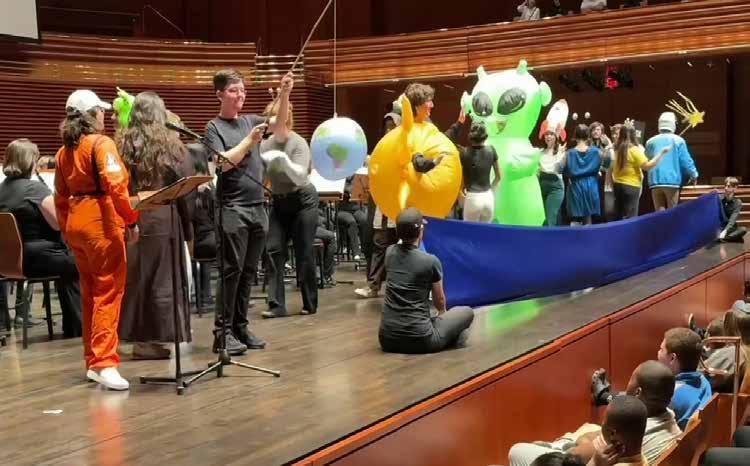

movement-friendly areas, visual schedules, and sensory supports.
The repertoire featured familiar and engaging pieces, allowing for audience participation, movement, and response. Undergraduate students served as concert facilitators, gently guiding and engaging attendees throughout the event. The sense of joy and belonging in the room was tangible.
For many, if not all, of the students attending, this concert was their first opportunity to experience live music in a world-class venue like Steinmetz Hall. Traditional concert etiquette, which requires stillness, silence, and more clearly defined audience behavior, often excludes individuals with sensory, communication, or physical differences. In most cases, the needs of these students would make attending a standard performance nearly impossible. The Inclusive Knights concert was different. It offered a rare and welcoming space where students could move, vocalize, stim, and engage with the music freely, without fear of correction or judgment. In doing so, it gave them not only access to the arts, but permission to be fully themselves. For the performers and student facilitators, it was a powerful reminder that music belongs to and can be enjoyed by everyone.
A Collaborative Journey
At the center of this journey is UCF’s Concert Band, under the dedicated leadership of Assistant Director of Bands David Schreier. They play a vital role in fostering musical engagement and community connection, both of which are crucial to a successful Inclusive Knights concert. Mr. Schreier and the ensemble are deeply committed to thoughtful programming, especially when preparing concerts for diverse audiences. Crafting a theme that resonates with the listeners—many of whom may have a range of disabilities and unique concert behaviors—is a challenge that Mr. Schreier embraces with enthusiasm. In collaboration with UCF’s music education students, the band works to design and deliver a concert experience that is both accessible and meaningful. This partnership not only enriches the final performance but also provides future educators and
The performance environment was designed with intention: open seating, quiet spaces, movement-friendly areas, visual schedules, and sensory supports.
Music education students give a visual representation of thick music texture during a piece played by the Concert Band during the Inclusive Knights concert, April 8, 2025. Photo courtesy of Bill Froom

Creating Harmony
continued from page 37
musicians with hands-on experience in inclusive concert planning. Together, they foster empathy, creativity, and educational outreach in the arts.
A Scholar’s Reflection: Learning From the Learners
As a doctoral candidate whose research explores the intersection of music and special education, this experience deeply impacted me. I’ve long advocated for inclusive approaches to education, but witnessing these undergraduates grow into inclusive educators in real time reminded me why this work is vital and why interdisciplinary collaboration is so important.
They questioned traditional concert etiquette, reimagined audience engagement, and found ways to provide access without compromising artistry. They developed professional dispositions rooted in empathy, flexibility, and innovation, while still having fun in the process. Most importantly, they left the course with a broadened sense of what it means to be a music educator.
Hosting Inclusive Concerts in YOUR Schools
w Creating Inclusive Concert Experiences
• Start small: You don’t need a large university setting—begin in your own school or district.
• Plan thoughtfully and collaborate: Work with colleagues, families, and community partners to design inclusive performances.
w Identify Your Audience
• Target a specific group: Self-contained exceptional education classes
— Students with 504 plans
— Students who may not typically attend or participate in performances
w Collaborate on Supports
• Partner with exceptional education teachers, therapists, and families.
• Learn about and provide necessary supports, which may include:
Shortened performance durations
Flexible audience expectations
Visual schedules
Sensory accommodations
Quiet breakout spaces
w Choose Accessible Repertoire and Themes
• Select familiar, upbeat music that encourages participation.
• Consider adding a narrative or central theme to guide the concert experience.
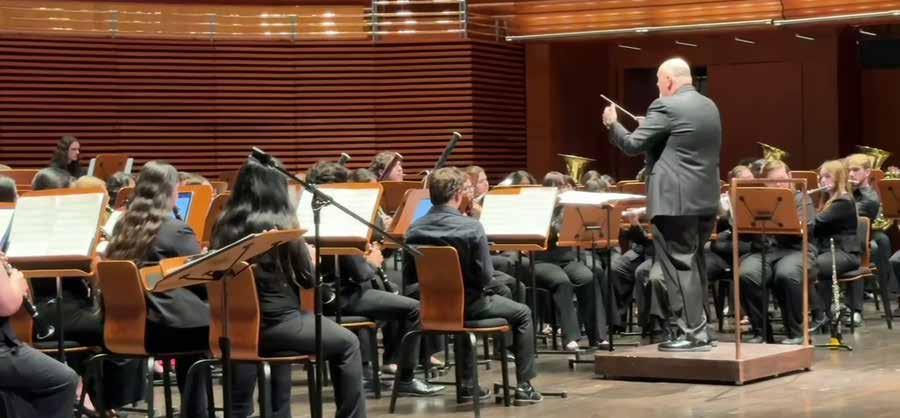
The Concert Band from the Inclusive Knights concert performs under the direction of Mr. Dave Schreier, April 8, 2025. Photo courtesy of Bill Froom
w Involve General Education Students
• Invite them to take leadership roles such as: Greeters
Visual cue holders
Facilitators
w Create a Welcoming Environment
• Allow audience members to move, vocalize, or respond in comfortable ways.
• Reinforce a culture of acceptance and flexibility.
w Focus on Core Goals
• Prioritize joy, expression, and access.
• Provide exposure to the arts for exceptional students.
• Foster empathy, inclusion, and creativity among general education students.
w Flexible Settings
• Concerts can take place in:
The school cafeteria
The music room
A local community center
w Possible Challenges to Anticipate
• Scheduling conflicts with classroom or therapy times
• Balancing performance length to keep students engaged without fatigue
• Managing overstimulation (lights, sound, large crowds)
• Preparing staff/volunteers to respond calmly to unexpected student behaviors
w Additional Tips
• Pilot a smaller “practice concert” before a full performance.
• Provide families with information in advance (visual schedules, social stories).
• Build in extra time for transitions and breaks.
• Celebrate small successes—clapping along or smiling can be as meaningful as singing a solo.
• Remember: Flexibility is key—the performance is for the students, not the program.
Looking Ahead
The success of the Inclusive Knights concert speaks to the transformative power of accessible arts education. By embedding supportive practices into undergraduate coursework and performance opportunities, programs like UCF’s Music for Exceptional Learners are shaping a
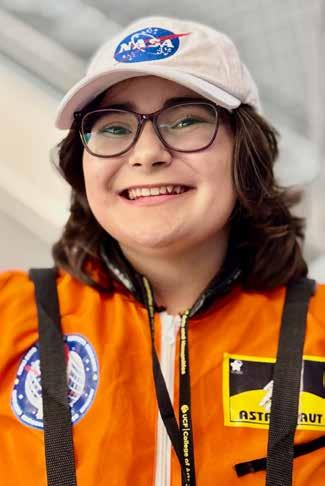
is all
April 8, 2025.
generation of educators who understand that accessibility is not just an add-on, it’s a foundation.
I am deeply grateful to the UCF School of Music, Dr. Christine Lapka and her undergraduate students, as well as UCF’s assistant director of bands, Mr. David Schreier, and the UCF Concert Band members for allowing me to walk alongside them throughout the semester. Their commitment to providing music for everyone set the stage— not just for a concert, but for a movement.
In 2026 and moving forward, the event is taking on a new name: Exceptional Knights. I highly recommend attending the free concert on April 7, 2026, at Dr. Phillips Center for the Performing Arts. We hope to see you there!
Teresa Faucette, MEd, is a PhD candidate at the University of Central Florida researching how music supports communication in individuals with autism. With over 20 years of experience teaching diverse learners, she is dedicated to utilizing interdisciplinary approaches to create educational environments that promote meaningful access and engagement for students of all abilities.

The concert emcee
smiles,
Photo courtesy of Bill Froom
Marketing Your Performing Arts Program
BY SANDRA SHAFER
IImagine this: your program center stage, not just on the stage but on every screen in your community. Social media is not just about selfies and viral dance challenges—it is also about sharing your students’ talents, generating buzz around performances, and communicating with parents, alumni, and supporters. With the right approach, you can turn every post, reel, and story into a reflection of your program’s success and expansion.
A recent report from Common Sense Media reveals the startling number of notifications teenagers receive daily and how social media distracts them from their lives. According to the report, teens get an average of 273 notifications per day, and 20% of them receive more than 500 notifications per day (Common Sense Media, as reported by Education Week, 2023). Alarmingly, nearly 25% of such notifications occur when they are in school, disrupting their attention and learning cycle.
Social media is the number one disruptor, accounting for nearly a third of school-day smartphone use (Common Sense Media, as reported by Michigan Medicine, 2023). This continuous stream of notifications highlights the need to encourage good social media habits, especially among students balancing homework and after-school
activities. For school groups like performing arts, having appropriate and safe material posted not only sets a good example but also provides students with a rewarding and positive alternative to the daunting distraction of the internet. Educators can use these platforms to enhance audience involvement and build a successful online image for their ensembles and programs with a well-considered strategy.
1. Set Clear Goals
Before you dive into social media, take time to define exactly what you want to accomplish. Are you aiming to sell more tickets for upcoming events, strengthen your school’s sense of community, or highlight student achievements? Your goals should be specific, measurable, and realistic. For example, instead of “get more followers,” aim to “increase concert ticket sales by 15% this semester” or “highlight five student success stories per month.” Having these objectives in place not only keeps your posts focused but also makes it easier to track progress and adjust your strategy as needed. Every post should connect back to your purpose, ensuring your time and effort on social media are intentional and impactful.

continued from page 40
2. Know Your Audience
Understanding who you are trying to reach is the foundation of a successful social media strategy. Are your primary followers parents, students, alumni, or community members? What platforms do they use most frequently, and what type of content do they respond to?
For example, parents might engage more with Facebook event posts, while students may prefer Instagram Stories or TikTok videos. When you know your audience’s habits, preferences, and needs, you can create content that resonates and motivates them to take action—whether that’s attending an event, volunteering, or sharing your posts with their own networks.
w Tailor your content to reach key stakeholders:
Parents and grandparents are more active on Facebook.
Students use Instagram, TikTok, and YouTube on a regular basis.
Community members like event news and highlights on Facebook and Instagram.
3. Peak Posting Times
For optimal reach, post at times when your audience is most active:



Monday–Thursday, 10 am–1 pm; Wednesdays also perform well between 8–11 am; early morning (5–7 am) can be effective for some audiences.
Monday–Thursday, 10 am–1 pm; strong early-morning engagement at 5 am daily; Reels often perform best around midnight, particularly on Mondays.
Wednesday, 2–5 pm; generally Monday–Thursday, 12–5 pm, with late afternoon as the strongest time.
Posting during these times can increase visibility and audience interaction (Buffer, 2025; Later, 2025; Sprout Social, 2025).
4. Create High-Quality Content
Create a logo for your program.
w Logo Branding: Incorporate your logo in social media content when brand identification needs to be emphasized. This is especially important for official statements, promotional messages, or public announcements. Preserve the original color and value for recognition across platforms.
w Natural Use of Other Graphics: Use other visual elements (photos, illustrations, design accents) in their original colors to preserve creativity and authenticity.
w Clear Messaging and Versatility: A consistent visual identity strengthens recognition across channels, from social media to print.
Graphics and Design Tools: Canva, Adobe Express, and VistaCreate (formerly Crello) offer free versions with drag-anddrop templates, easy branding options, and built-in stock images. These make it simple to design posts that stay consistent with your school’s colors and logo.
Photo Editing: Free apps like Pixlr and Snapseed allow you to adjust lighting, apply filters, and polish rehearsal or performance photos before sharing them online.
Video Editing: For creating polished reels or performance highlights, tools such as CapCut, InShot, or VN Video Editor make it easy to trim clips, add text, and follow current content trends.

5. Post the Right Content in the Right Place
w Instagram Stories: Interactive and fleeting content such as polls, questions, and rehearsal peeks
w Instagram and Facebook Feeds: Polished, evergreen content including student spotlights, concert highlights, and announcements
w TikTok: Relatable and entertaining content, including skits, bloopers, and teasers
w Facebook Events: A central location for event details and RSVPs
Matching content to the right platform ensures maximum impact.
6. Engage Your Audience
Social media is about building relationships, not just broadcasting information. Respond promptly to comments and messages, thank people for their support, and join relevant conversations in your community. Encourage interaction by asking questions, running polls, or sharing content that invites feedback. When followers see that you are listening and engaging, they are more likely to stay connected, share your content, and attend your events.

w Use Instagram Stories for Q&A and polls.
w Post short, trending reels to attract attention.
w Include prompts or questions to encourage interaction.
7. Consistency Is Key
Create a realistic posting calendar. Consistent posting maintains audience interest. You want to keep your audience coming to your page for information. Students love seeing themselves highlighted, and when that happens, they share it on their pages creating more visibility.
8. Be Authentic
Authenticity is the heart of meaningful social media engagement. Your followers—whether students, parents, alumni, or community members—want to see the real spirit of your program. This means blending the genuine voices and personalities of your students with the professionalism and guidance that ensure your content remains polished, respectful, and safe.
Encourage students to contribute their perspectives, stories, and creative ideas; this fosters ownership and excitement around the program’s online presence. At
the same time, provide clear boundaries and oversight to maintain a consistent brand image that reflects your values and mission. Authentic content might include candid behind-the-scenes glimpses, student testimonials, rehearsal bloopers, or personal reflections on the impact of participation in the arts.
By striking this balance, your social media channels become a vibrant, trustworthy space where audiences connect emotionally with your program’s journey. Authenticity builds credibility, invites ongoing engagement, and inspires others to support and celebrate your students’ achievements—making your social media presence not just promotional, but truly relational.
9. Use Relevant Hashtags
Hashtags are powerful tools for increasing the visibility of your social media posts beyond your immediate followers. Including three to five well-chosen hashtags per post can significantly improve discoverability and engagement, connecting your content to broader conversations and communities.
Marketing
continued from page 43
To maximize their effectiveness, use a thoughtful mix of:
w Program-specific hashtags that uniquely identify your group or event (e.g., #ApopkaChoirs, #DarterChorus, #SpringConcert2025). These help build your program’s brand and create a centralized collection of your content.
w Popular and trending hashtags within your niche (e.g., #ChoirLife, #MusicEducation, #PerformingArts). Using these taps into larger audiences interested in the arts and can bring new followers to your page.
w Student-friendly and fun hashtags that resonate with your performers and their peers (e.g., #BehindTheCurtain, #RehearsalLife, #StageSquad). These foster a sense of belonging and encourage students to use the same tags on their personal posts, amplifying your program’s reach organically.
Be mindful to avoid overloading posts with too many hashtags, which can seem spammy and reduce engagement. Instead, select hashtags that are relevant, searchable, and reflect the tone of your message.
Regularly review which hashtags perform best by checking your post analytics and stay up-to-date with




emerging trends in music and social media. This will keep your hashtag strategy fresh and effective, helping your program stay connected to both local and global audiences.
10. Utilize Scheduling Tools
To stay consistent on social media without the last-minute scramble, scheduling tools are a game changer. Many free options allow you to connect multiple profiles, plan posts in advance, and even collaborate as a team. Some platforms focus on visual planning, while others specialize in bulk scheduling or integration with a broader content calendar. Paired with Canva’s Content Planner, these tools help maintain a polished, professional online presence while freeing up time to focus on making music. By implementing these strategies, performing arts educators can transform social media into a platform for advocacy, storytelling, and community-building. Connecting with parents, students, alumni, and community supporters not only promotes events but also fosters appreciation for the arts. A safe, inspiring online presence models responsible and creative social media use for students, empowering them to share their talents effectively.

Sandra Shafer, director of choirs at Apopka High School and an alumna, is a two-time Teacher of the Year. Her choirs earn top honors, including Apopka Belles’ ACDA invitations. She performs with Orlando Sings Solaria Singers, conducts Harmonia, and is an active clinician, adjudicator, and presenter. She earned her BME from Stetson University.
References
Buffer. (2025, July). Best time to post on social media. https://buffer.com/resources/best-time-to-post-social-media Common Sense Media. (2023, September 26). Students get hundreds of notifications on their phones every day—even at school (as reported by Education Week). Education Week https://www.edweek.org/technology/students-get-hundredsof-notifications-on-their-phones-every-day-even-atschool/2023/09
Later. (2025). Best time to post on Instagram in 2025. Later. https://later.com/blog/best-time-to-post-on-instagram Michigan Medicine. (2023, October 2). Study: Average teen received more than 200 app notifications a day. Michigan Medicine. https://www.michiganmedicine.org/health-lab/study-averageteen-received-more-200-app-notifications-day Sprout Social. (2025, March 26). Best times to post on social media in 2025. Sprout Social. https://sproutsocial.com/insights/besttimes-to-post-on-social-media
Research Puzzles
FOR MUSIC TEACHERS
This on-going column seeks to stimulate awareness of research issues for FMEA teachers and researchers.
FMEA RESEARCH COMMITTEE
D. Gregory Springer, PhD, Chairperson Florida State University
When Should I Incorporate Expression Into My Teaching?
Many teachers feel unsure about when they should incorporate expression into the learning sequence. Should it be infused throughout the learning process or be included at the end, after students have learned the notes and rhythms?
Dr. Craig Hurley (Clayton State University & Cobb County Schools) and Dr. Rebecca Atkins (University of Georgia) conducted a study to answer this question directly (Hurley & Atkins, 2025). This study, which is published in Update: Applications of Research in Music Education, is part of a line of research that the same authors have been engaged in for at least six years (Hurley, 2019; Hurley & Atkins, 2022, 2023). It is also based on prior research on the many positive effects of vocal models on students’ performance, including expressive performance (Hinkley, 2023). In this most recent study, Hurley and Atkins (2025) addressed the following research question: “What effect, if any, did an expressive model throughout the learning sequence, as opposed to only at the end of the sequence, have on expressive performance scores?” (p. 13).
Participants in their study included 105 middle school singers (sixth through eighth grades) from two different schools. These singers learned two songs—one under an infused-expression sequence and another under a postexpression sequence. In the infused-expression sequence, students learned the song first using rhythmic text spoken with expression, then adding pitches sung with expression. In the post-expression sequence, students learned the rhythm, pitches, and text first, with the expressive elements added after the rhythm, pitches, and text were learned. The students’ singing performances were audio recorded, and Hurley and Atkins evaluated them on two expressive elements: dynamics and articulation.
Hurley and Atkins (2025) found no significant differences in performance between the infused-expression and postexpression sequences, which differed from their prior studies in which infused-expression conditions resulted in enhanced performances (Hurley, 2019; Hurley & Atkins, 2022, 2023). The authors pointed to the powerful role of the expressive model used in the current study, which seemed to influence both groups in important ways. Hurley and Atkins (2025)

summarized their results as follows: “Based on these results, we suggest that an infused-expression sequence and a postexpression sequence are equally effective when teaching expressive elements if both sequences have an expressive model throughout” (p. 17). In other words, regardless of the type of sequencing used, the middle school students in this study imitated the expressive model, leading to enhanced expressivity in their performances.
As always, I encourage you to read the whole article for more information. The authors outlined their procedures with great detail in the Method section, and they also linked the model recordings that were used for both learning sequences in the article so you can listen to the models that were used in the study. Hurley and Atkins also recorded an episode on the Choralosophy podcast (Munce, 2025), so be sure to listen to that podcast episode to learn about all their research on teaching students to perform with expression.
References
Hinkley S. P. (2023). Vocal modeling: A review of literature. Update: Applications of Research in Music Education, 42(2), 23–30. https://doi. org/10.1177/87551233221146285
Hurley C. R. (2019). The effects of rehearsal sequence on the expressivity of children’s choral performance [Doctoral dissertation, University of Georgia]. UGA Open Scholar. https://openscholar.uga.edu/ record/8481?ln=en&v=pdf
Hurley C. R., Atkins R. L. (2022). The effects of rehearsal sequence on the musical expressivity of young voices. International Journal of Research in Choral Singing, 10, 1–28. https://acda.org/archives/4183
Hurley C. R., Atkins R. L. (2023). The effects of sequence on expressivity in solo singing of young voices. Bulletin of the Council for Research in Music Education, 236, 7–20. https://doi.org/10.5406/21627223.236.01
Hurley, C. R., & Atkins, R. L. (2025). The effects of modeling and sequence on the expressivity of young voices. Update: Applications of Research in Music Education, 43(3), 11–18. https://doi. org/10.1177/87551233241249666
Munce, C. (Host). (2025, August 15). Teaching expression from day one with Craig Hurley and Rebecca Atkins (No. 256) [Audio podcast episode]. In Choralosophy. https://choralosophy.com/2025/08/15/ episode-256-teaching-expression-from-day-one-with-craig-hurley-andrebecca-atkins/
Email your questions and feedback to dgspringer@fsu.edu with a subject heading Research Puzzles.
Mark A. Belfast, Jr., PhD Advisor
What Will Be Your Legacy?
s we barrel our way through hectic concert seasons, approaching midterms, and certification exams, I am constantly reminded of you and concerned about the toll your bloated schedules may ultimately have on you. I wish I knew the secret to a happy, healthy, and purposefully fulfilled life absent the stress and exhaustion we often experience. Alas, even I struggle at times with how to best balance what I get to do (i.e., that which motivates,
Fall Conference: To-Do List
Greetings,
invigorates, and propels me) with what I’ve got to do (i.e., that which is required of me). Nevertheless, having been in the game for a minute, I know this much to be true: Being a teacher is worth it.
You’ve chosen one of the most powerful, demanding,

everyone! I hope you all are off to an amazing academic semester. The time is upon us, and I, along with our fantastic Florida NAfME Collegiate Executive Board, am so excited to say that Fall Conference is one month away. So much planning has gone into this conference, and Florida A & M University is thrilled and honored to be hosting this year. However, there are three things you all should know before attending the 2025 Fall Conference.
1. Come with the essentials: Before we get into any details about the Fall Conference, make sure that you pack ALL essential items. Pack a change of clothes, toiletries, snacks, money, etc., that will last you November 8–9. Also, bring some spirit wear and represent your school and chapter of Florida NAfME Collegiate.
2. Come with a positive attitude: We look forward to seeing old and new faces at this year’s Fall Conference, and if it’s your first time with us, take the time to get out of your comfort shell and talk to other NAfME Collegiate students from across the state!
3. Come with an open mind: This year’s Fall Conference has been tailored to offer beneficial knowledge for all attendees, regardless of musical focus. We are excited for you all to meet the clinicians, keynote speaker, and Florida supervisors, as they will provide interactive sessions that teach each of us and keep us engaged. Don’t be afraid to meet them, get their contact cards, and make connections that will last a lifetime. If you didn’t know by now, the illustrious Florida A & M University will host the 2025 Fall Conference on November 8–9. Our theme “We are all in this together!” centers on the idea that no matter your focus of music, walk of life, or beliefs, we as past, present, and future music educators are all advancing music education together as one powerful unit. I am incredibly proud of the work done behind the scenes to put this event together, and I cannot wait to see everyone in person next month. Stay tuned for updates on our Instagram, flnafmecollegiate.

and rewarding professions possible: teaching music. That decision already sets you apart. It shows that you believe music matters—not just as an art form, but as a force that can shape lives. Here’s the reality: Teaching. Is. Hard. It’s really hard, which is precisely why our children need you. They need your passion, your creativity, and your determination. Every year, thousands of students walk into schools carrying more than just books—they carry questions about who they are and who they might become. For many, music will be the key that unlocks that discovery, and you will be the shepherd that leads them safely to it.
Music teachers create communities where students learn discipline, teamwork, and confidence. They open doors to experiences students never imagined possible—performing on a stage, discovering a hidden talent, or realizing they have a voice worth hearing. When you step in front of a group of students, you’re teaching resilience, leadership, and pride, but the work is not easy. You’ll face long days, sickness, heartache, and times when progress seems elusive. When you’re in the throes of such a season, don’t fret. The challenges
FLORIDA NAfME COLLEGIATE
Jason Lane President
you face as a teacher may be the very moments that sharpen your skills and strengthen your resolve. Every setback is a chance to model persistence. Every obstacle is an opportunity to show your students what commitment looks like. Every victory—big or small—becomes fuel to keep going. Embrace that growth mindset NOW so it’s who you are later.
Florida is counting on educators like you to ensure that music education remains strong, accessible, and lifechanging. When you step into your first classroom, you won’t just be taking a job. You’ll be taking on a leadership role in your community. So, remain focused. Push through the hard work of your degree program. Take every opportunity to rehearse, observe, practice, and reflect. Every skill you sharpen now will pay off when you’re standing in front of your own students.
The motivation is simple: Your work will change your life and the lives of others! Some of your students will become professional musicians. Most will not. Nevertheless, all of them will remember the lessons they learned in your classroom about dedication, compassion, courage, and yes … music. That will be your legacy.
MULTICULTURAL NETWORK
Arnekua Jackson, PhD Chairperson
SOUNDS OF THE SEASON: Nurturing Identity and Community Through Music
School has begun, and fall is in the air. The weather is shifting, students are settling into routines, and music is starting to echo through our classrooms and hallways again.
October is a time when things begin to take root. We have met our students, started building community, and introduced our expectations. Now, we get to nurture what we have started, musically, culturally, and personally. This season invites us to slow down and reflect. What kind of space are we creating? Are our students feeling seen, heard, and valued? Are we bringing our full selves into the room and encouraging them to do the same?


Three Ways to Harvest Harmony This Fall
1. Invite cultural conversations. Encourage students to connect music with their lives. Explore traditions from their families, hometowns, or cultures. Create moments where students can share who they are and what matters to them through sound, language, and storytelling.
2. Root your ensemble in meaningful practice. Now is the time to strengthen the bonds in your classroom. Whether it is a warm-up routine, community check-in, or a favorite song that grounds the group, build practices that promote trust and belonging.
3. Recommit to your own growth. Let this season challenge you, too. Learn a new song in another language. Attend a session on inclusive practices. Partner with someone from a different background. When we stretch, our students benefit.
Moving Forward
Fall reminds us that growth takes intention. As you continue shaping your classroom culture, remember the power you hold to inspire, include, and transform. Let your classroom reflect the beauty of your students’ diversity. Let the music you teach be a bridge. And let this season be one of meaningful connection where culture, creativity, and community come together in harmony.
CONTEMPORARY MEDIA COMMITTEE
Clint Randles, PhD Chairperson
Understanding Contemporary Media in Music Education: A Guide for Forward-Thinking Music Teachers
s music education continues to evolve, so too must our understanding of the tools, genres, and approaches that resonate with today’s students. One of the most impactful shifts in recent decades has been the rise of contemporary media in music education. Contemporary media encompasses a diverse range of practices that are not only relevant to students’ lives but also essential for preparing them for a modern musical landscape. In the context of music education, contemporary media refers to a fusion of modern band practices, digital media tools such as recording and production technology, and the study and performance of popular music. This paradigm shift represents more than just a change in content; it signals a broader, more inclusive approach to what music learning can and should be in the 21st century.
Modern Band: A Gateway to Student Engagement
One of the most visible elements of contemporary media in schools is modern band—an approach that uses popular music styles

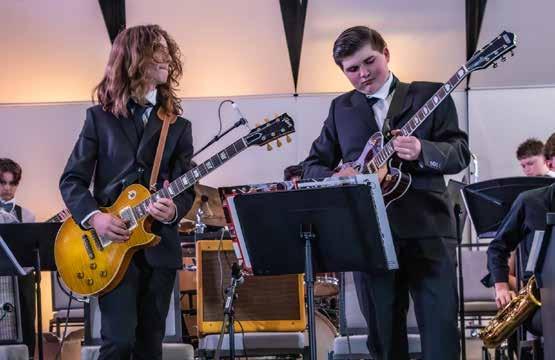
such as rock, hip-hop, pop, R&B, and reggae to teach culturally relevant music. Unlike traditional ensembles, modern band encourages students to form groups similar to those they might see in their everyday lives. Instruments like electric guitar, bass, keyboard, and drum set take center stage, and students often bring their own musical preferences into the classroom. Modern band supports student-centered learning by valuing music that students already know and love. It breaks down traditional barriers of entry,
making music accessible to those who may not have prior experience reading notation or participating in large ensembles.
Digital Media: Tools for Creation and Collaboration
Technology has become an indispensable part of musicmaking, and today’s music classrooms are beginning to reflect this reality. Digital audio workstations (DAWs) like Soundtrap, BandLab, Logic, and GarageBand enable students to compose, produce, and edit music
using tools they can access both in and out of school. Incorporating music technology and production into your curriculum empowers students to become creators, not just consumers, of music. Whether through remixing, beat-making, podcasting, or film scoring, students learn how to express themselves using digital platforms that mirror professional music industry practices. Importantly, this also introduces students to a wide range of career paths within the music and media industries.
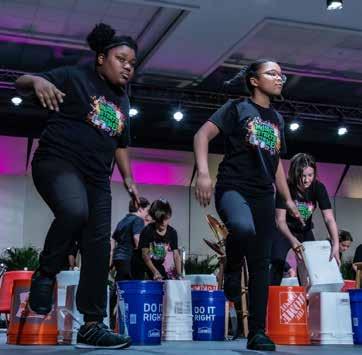
Popular Music: Bridging Cultural and Musical Relevance
At the core of contemporary media is popular music—the soundtracks of students’ lives. Studying and performing pop music provides an authentic entry point for discussing musical structure, history, culture, and identity. It also allows teachers to highlight diverse voices and traditions, increasing cultural responsiveness in the classroom. By embracing popular music, educators can validate students’ musical tastes while still addressing core musical concepts such as form, harmony, rhythm, and expression. This encourages deeper engagement and fosters a lifelong appreciation for music in all its forms.
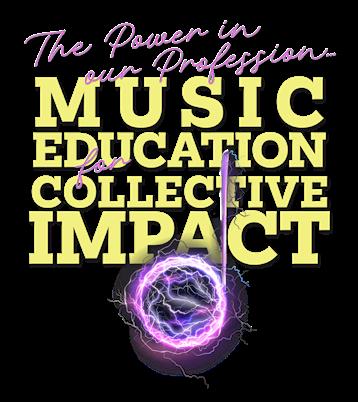
Moving Forward Together
Implementing contemporary media in music education doesn’t mean abandoning traditional methods—it means expanding our toolkit. For forwardthinking music educators, it offers a path toward more inclusive, relevant, and creative music-making experiences that meet students where they are while preparing them for where they’re going. Whether you’re starting small with a classroom beat-making project or launching a full-fledged modern band program, embracing contemporary media can transform your classroom into a vibrant, future-ready space for music learning.

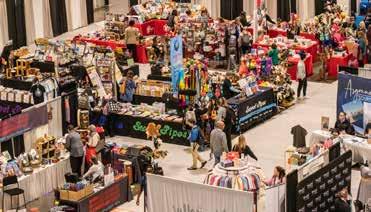

Clifford Madsen, used to remind us, “You control the environment that, in turn, controls you.” While not completely true, since we can’t control everything, it was a powerful lesson for a new teacher. His words pushed me to focus on what I could control and to put my very best efforts there. This is the lens I used in my path to autonomy.
In Part 1, I stated that self-determination theory identifies three fundamental human needs: autonomy, competence, and relatedness. The heart of autonomy lies in recognizing our sphere of influence, identifying what we can and cannot control. In both our classrooms and our personal lives, it often feels like external factors dictate everything. Some days, those pressures can feel like an overwhelmingly large barrier to joy. But when we step back, we often realize we have more agency than we thought.
In my own classroom, I had to first decide on my non-negotiables. I knew that if my room was noisy and unstructured, I would
PROFESSIONAL LEARNING COMMITTEE
Ajori Spencer Chairperson

In Pursuit of Joy PART 2
Stay focused on true north
effectively. My students and I needed a classroom free of extraneous noise and side conversations so we could fix the music together. This was within our sphere of influence. I could not control the typical teenage angst or the day students had experienced before they walked into rehearsal, but I could create an environment where they were consistently engaged. This was within our sphere of influence. I could create an environment where students knew what to expect, always had tasks, and felt empowered to tackle those tasks. This was within our sphere of influence.
The structure gave me a fighting chance to pursue the day I wanted and more importantly, the outcomes my students deserved. This process was anchored in my “true north,” a concept Stephen Covey describes as the internal compass that steers us toward purpose. For me, it wasn’t about creating a classroom that served my needs. Rather, I realized I could not fully pursue my why without first setting myself, and by proxy my students, up for success.
Autonomy, in practice, comes down to choice. How we manage time, organize our workspaces, and communicate with others are intentional choice that can improve our conditions, allowing us to better handle challenges. Every success born from a well-managed environment gives us the energy to stay focused on our true north and walk boldly toward joy.
overwhelmed. Now you’re setting up conditions in your classroom and workplace that align with how you work best.
How will we influence
it?
There is also power in building autonomy by working from strengths, both our own and our students’. Once we identify what is within our influence, the next question becomes: How will we influence it?
Tools like StrengthsFinder 2.0 or other strength inventories can help us identify what energizes us and how we naturally operate. For example, if your strengths lean toward organization or strategic planning, you might find joy in big-picture planning. Perhaps collaborating with a colleague with the opposite skills would allow both of you to grow without feeling
This same mindset applies to students. As we grow to understand their strengths, we can shift how we communicate, motivate, and even assess them. At times, a student’s struggle to demonstrate learning is not rooted in a lack of understanding but rather in a mismatch between their strengths and how we ask them to show us what they know. How much more joyful could their education be if we recognized and leveraged their strengths?
Ultimately, autonomy is not about controlling everything, but about intentionally shaping the environment in ways that give both teachers and students the best chance to succeed. When we recognize and play to our strengths, we create conditions where our energy is directed toward what we do best rather than what drains us. By aligning what is within our influence to both our purpose and our strengths, joy has the greatest chance to thrive.

DIVERSE LEARNERS COMMITTEE
Christine Lapka, EdD Chairperson
Universal Design for the Universe of Learners in General Music
We often suggest using Universal Design for Learning (UDL) when writing lesson plans to include diverse learners. Lately, I’ve been reflecting on the meaning of UDL. Interestingly, it’s not about finding one universal principle—because all the principles of UDL emphasize the word multiple. Therefore, I believe we can think of UDL as providing multiple approaches for the universe of students who attend general music—usually all the students in the school.
One of the UDL principles, Multiple Means of Representation, focuses on how information is presented to learners. Consideration
3.3, Cultivate multiple ways of knowing and making meaning, offers several strategies (CAST, 2024):
w Incorporate multiple ways of knowing, including storytelling, kinesthetics, problem solving, and relational learning through interpersonal experiences.
w Introduce graduated scaffolds that support information processing strategies.
w Provide multiple entry points to a lesson and optional pathways through content (e.g., exploring big ideas
through dramatic works, arts and literature, film, and media).
w “Chunk” information into smaller elements to help prevent cognitive overload.
With these suggestions in mind, I began exploring ways to teach largo and allegro.
After reviewing definitions, I searched for materials that clearly connect lyrics to tempo. For allegro, I focused on its literal Italian meaning: cheerful and joyful.
My entry point is asking students:
“How do you move when you are happy?”
“Are those motions fast or slow?”
Then, we engage in active listening that emphasizes micro beats in “Happy” by Pharrell Williams. We might stand in a circle, think of ways to move quickly and joyfully, and take turns leading the motions. (The teacher can hold a hand over each student’s head to signify the leader.)
After this movement activity, I introduce a scaffold: a happy face alongside the Italian word allegro. I explain that allegro means happy.
“We are now going to speak Italian when we hear a
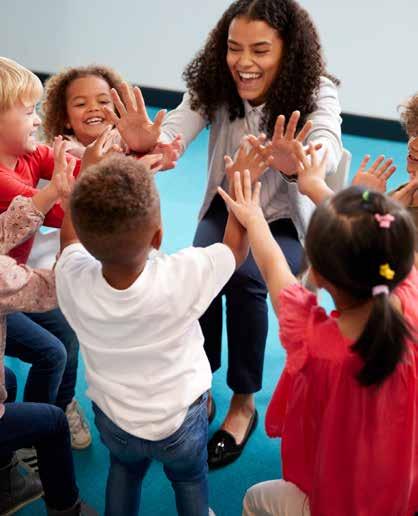
song with a happy tempo.”
If you want to teach the opposite on the same day, it can be fun to have students move to the story “Being Largo the Slow Loris” while “Gymnopédie No. 1” plays in the background. The teacher reads the story with visual slides:
w “High in the treetops, Largo the slow loris wakes up … Yawns so wide his mouth almost touches his
neck! Stretch your arms slowly … and yawn just as big as Largo. Wiggle your fingers like tiny claws … slowly!”
w “Largo moves to another branch … Ooops! He tiptoes past a sleepy frog who makes a funny slow face! Make a slow, silly face back to the frog. Big eyes … slow blink … careful, don’t wake him!”
continued from page 51
w “A chameleon inches along a branch nearby … and it’s wearing tiny sunglasses! Tiptoe slowly, pretending
you’re sneaking past the coolest chameleon in the forest. Wiggle your fingers slowly like it’s crawling

over a branch … slow, slow, slow!”
w “Largo spots a tortoise carrying a teeny-tiny leaf on its back. Pretend to carry a leaf … on your head … slowly … without letting it fall. Pretend to wobble a little … slowly … careful … steady …”
w “Largo stretches on a wide branch … Oooh, a little bird lands on his head! Slowly, slowly, he wiggles his ears to make the bird giggle. Wiggle your ears … slowly … and make a tiny bird giggle … slowly.”
w “As the sun sets, Largo curls up into his favorite nook and listens to a lullaby. Slowly … slowly … Largo the slow loris goes to sleep. Sleep like Largo as the music drifts away.” It might also be helpful
to relate largo to large or broad, using visuals of large beats. Perhaps the “L” words will serve as a scaffold for remembering the musical term.
I’m sure you have fantastic ideas of your own! The Diverse Learners Committee would love to share your lesson ideas during our session at the conference, in Florida Music Director, or in the FMEA database. Please email your ideas to me.
References
CAST. (2024). Universal Design for Learning guidelines (Version 3.0). CAST. https://udlguidelines. cast.org
Williams, P. (2013, November 21). Happy [Video]. YouTube. https://www.youtube.com/ watch?v=ZbZSe6N_BXs Satie, E. (n.d.). Gymnopédie No. 1 | Lullaby version [Video]. YouTube. https://www.youtube. com/watch?v=7V4l_3928wo
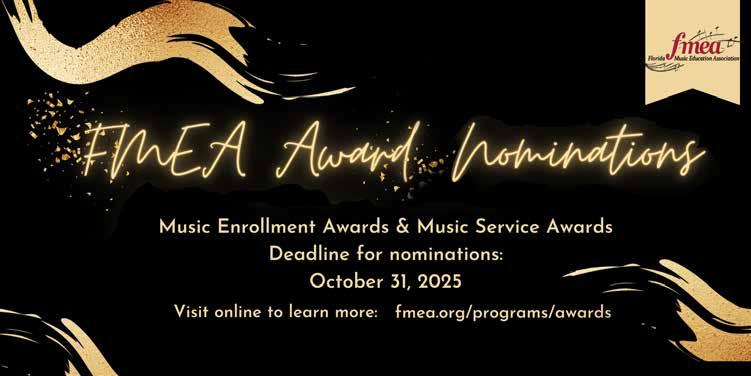

AWARDS COMMITTEE
Sondra A. W. Collins Chairperson
Your FMEA Awards Committee wants to recognize and empower the heroes among us who have been the light this past year, as well as continue to be the light, for their students and others. Your FMEA Awards Program offers several awards in recognition of the efforts and accomplishments of those who have made outstanding contributions to music education. And it’s your turn to be their light, in recognizing them.
Are you part of a middle or high school music program that offers dynamic music instruction with high recruitment and retention numbers? If so, you can be a part of this year’s awards program by applying for the FMEA Music Education Enrollment Award! To qualify, 30% at the high school level and 45% at the middle school level of the entire school’s population must be involved in a music program taught by an FMEA member.
Have you been teaching music for 25 or more years? If so, you qualify for the Music Education Service Award, and the application process is very simple. If this is you, submit your application so you can be part of the exciting awards ceremony in January! FMEA also has a very special award that honors those reaching the mark of 50 years of service in music education.
The school enrollment awards and service awards are typically self-nominated and take only minutes to complete online. The deadline for the Music Education Service Award and Music Education Middle/High School Enrollment Award categories is October 31, 2025. Please check the FMEA website for details about the nomination process: FMEA.org/programs/awards.
And now here’s a little of the brilliance that our awardees shared with us during the 2025 FMEA Professional Learning Conference.
Our 2025 FMEA Secondary Administrator of the Year, Dennis Mayo, principal of Marshall Middle Magnet IB World Community School in Hillsborough County Public Schools, inspires through testimony of a vibrant music education community.
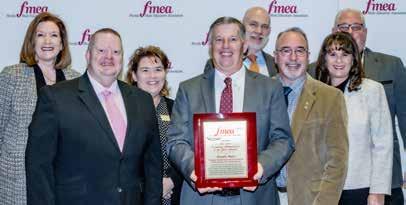
IPrincipal, Marshall Middle Magnet IB World Community School Hillsborough County Public Schools
“It is a rare moment for someone such as myself to receive such a prestigious award for something that they have little to no talent in. I am NOT a musically talented individual, but I assure you that I hold our music educators in such high esteem because of the work that they do. I’ve seen students be transformed, often in short periods of time, to develop a love, a lifelong passion, for music . It transforms them into young adults that have a passion that’s going to help them balance their lives as they move through school and life. There’s no substitute for high-quality music education in our classrooms, and it’s my job and my charge to help support that process.
Growing up, it was my father’s dream that one of his four kids would play an instrument. He brought home a trumpet, a violin, and even an organ. I used to think that it was my rebellious attitude that prevented me from moving forward. However, I now recognize that it may have been the absence of a quality music educator. I know that everyone forges their own path through life, and mine did not take me personally through this beautiful music experience, but I have been able to impact others through my work in advocacy. And yes! I subscribe to “It’s never too late!”
I believe in music education because of the value it adds to an individual’s quality of life. Music has the power to take people on powerful journeys and expose thoughts and memories that we need to be reminded of from time to time. This is what makes us human. Our students need a quality music education to balance and enrich their lives. And I feel it’s my obligation to provide those under my charge with the best of the best. Winning this award means so much to me, and I wish to thank my music educator for his nomination and support. Our partnership over the past few years has taken me on a musical journey that has been a career highlight. In closing, my dad, looking down on this moment and sharing in my pride for helping all these students and my community on their path of high-quality music education, I believe would be happy.”
2025 FMEA Secondary Administrator of the Year
DENNIS MAYO
FLORIDA VOCAL ASSOCIATION
Jeannine Stemmer President

Malanga for the Soul
Ialways loved reading
Chicken Soup for the Soul during those seasons of life when I was facing new, exciting, and sometimes difficult firsts. Those stories warmed my heart. But if I’m being honest ... I’ve never actually loved chicken soup. What I do love is a nice, warm bowl of malanga topped with some Parmesan cheese.
If you’ve never had it— first of all, I’m sorry—and second, come to Miami and try some! My favorite spots are Sergio’s Restaurant and, of course, La Carreta.
Let me tell you a little about La Carreta. It’s a Cuban restaurant in the heart of Miami, and it’s more than just a place to eat; it’s a cultural Mecca. It feeds the stomach and the soul, especially if you want to experience true Miami culture.
Miami has this wild tradition; if you’ve lived here, you know exactly what I’m talking about. Anytime there’s a major event that impacts our city, people gather in front of La Carreta on Bird Road/40th Street (right near my home), banging pots and pans in celebration. It’s loud, chaotic, and honestly ... I’d usually rather be asleep than caught in that crowd. But I wouldn’t
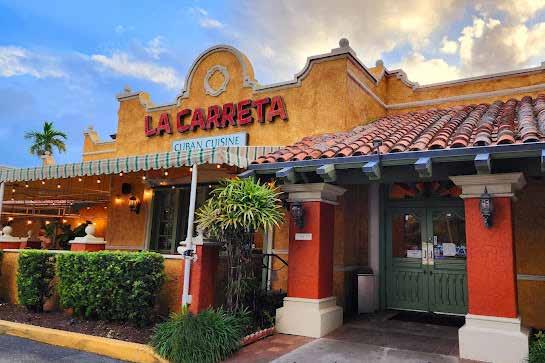
want to live in a Miami without it. It’s part of who we are.
And that brings me to something important: traditions matter.
They matter in cultures, in communities, and especially in the culture of your classroom.
Even the traditions that seem silly or annoying can become the heartbeat of your program. They turn strangers into friends. They turn a school into a second home. And yes, they can turn a music classroom into a family.
A good music program needs culture.
And culture is built
through tradition, big or small.
Here are four tips to help build or maintain traditions in your music program:
1. If you’re new to a school, spend time learning its existing traditions. Adopt them first, then adapt them to fit your style.
2. If you’ve been at the same school a while, don’t give up on your traditions. Instead, evolve them with student input so they stay fresh and meaningful.
3. If there’s a tradition you don’t love, try introducing new ones. Gauge how students respond; they might naturally replace the old ones.
4. Let students take ownership of traditions. You’ve already got a lot on your plate, and this not only gives you breathing room, but also helps students grow as leaders.
Traditions don’t have to be grand or perfect. They just have to be authentic and consistent.
Whether it’s banging on pots and pans outside a restaurant or singing a silly warm-up song before rehearsal, if it means something to your group, it matters.
Wishing you a fantastic Quarter 2.
Love you all, and go make some beautiful noise.

FLORIDA ELEMENTARY MUSIC EDUCATORS ASSOCIATION
Meghan Alfaro President
October is an exciting month for us in FEMEA! This is the month we get to celebrate the work of our teachers and students from across the state of Florida at our Regionals Festivals! These festivals have become an integral part of the service FEMEA provides to its membership. As president, I have shared my vision that ALL students deserve access to quality music education. These festivals help move the state toward that goal. We are so proud of our AllState Elementary Chorus and All-State Elementary Orff Ensemble and believe even more students deserve an opportunity to be recognized. In addition to chorus and Orff ensembles, Regionals also offers Modern Band, and Rising Stars is for our stellar third graders! This year all four opportunities are offered at BOTH locations. If you’ve never participated in Regionals, that’s OK. Please consider coming to watch! We’d love to have you. w Southern Regionals, October 25, 2025 –Southeastern University, Lakeland, Florida w Northern Regionals, November 1, 2025 –University of Florida, Gainesville, Florida October also begins performance season, which means stress season! There is no stress like elementary
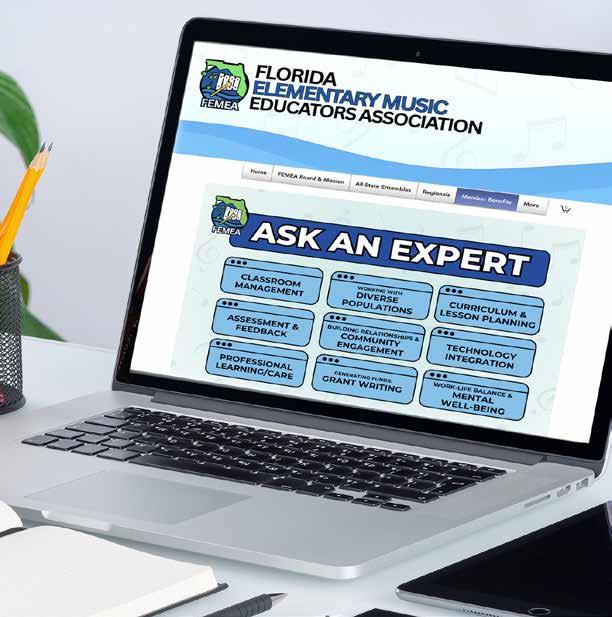
music teacher stress! Between concerts, student behaviors, principal demands, and the HUNDREDS of people we interface with every week, there is a good chance you are completely drained come Friday afternoon. That’s why we are offering new services to help ease your mind. Maybe you’ve seen the Sunday Scaries featured on our site, or the 3 Post It Plans? We are excited to kick
off our new “Ask An Expert” service! Have you had a really tough day and wish there was someone who would let you pick their brain, but you don’t know who to ask? Visit our “Ask An Expert” page on femeamember.org! This new benefit connects members across the state with other members who have volunteered to share their expert knowledge. Members just visit the page, select a
topic, and then ask their question. Instead of panicking when you’re feeling stressed, ask an expert! Check out the topics above.
As October whizzes by, remember that FEMEA is here for you. Please reach out to me, our member or student engagement chairpersons, or your district chairperson, and let us know how we can support you. Have a great October and see you soon!
FLORIDA ORCHESTRA ASSOCIATION
Andrea Szarowicz President
It’shard to believe, but October has already arrived. It feels like we just began the school year, yet for many of us who started in early August, the first quarter is already drawing to a close. By this point, classroom routines should be firmly in place, students should know the expectations, and your ensembles are preparing for their first concerts of the season. To those heading into performance week, we wish you and your students the very best!
October is also a time when all-county auditions may be approaching in your district, and for many, FOA fall solo & ensemble is right around the corner. Both events provide powerful opportunities for students to showcase their growth and musicianship while building accountability in practice habits. Don’t forget
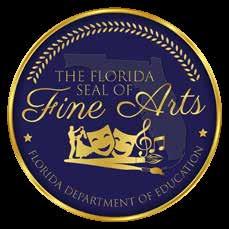
some extra steps you can take: inviting an outside clinician to present a masterclass or sending recordings of your ensemble out for feedback before your first concert. These experiences provide students with invaluable perspective, and when repeated throughout the year, they establish consistency and reinforce expectations beyond your own podium voice.
As you look for ways to encourage growth, remember the opportunities available through the Florida Seal of Fine Arts for your high school students. The Seal is a tremendous way to recognize student achievement in the arts, and it can be supported by encouraging meaningful service hours. A wonderful avenue is to connect with your feeder



schools—whether by hosting after-school sectionals with your high school musicians working alongside middle school students or creating small mentorship events. This not only strengthens younger programs, but it also fosters leadership, provides
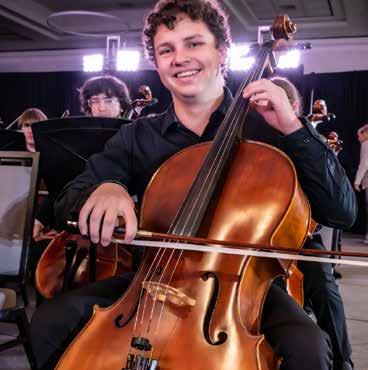
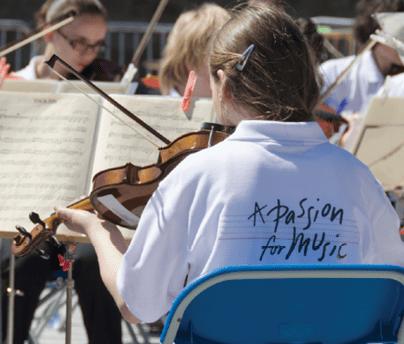

Tri-M and Seal of Fine Arts service opportunities, and most importantly, builds long-term retention in your orchestra pipeline. Looking ahead, I am thrilled for our upcoming FOA/FL-ASTA Fall Conference, October 1–17 at the Hilton Orlando. This year we welcome two keynote speakers: Dr. David Pope and Mr. Creston Herron. Our conference is filled with engaging, relevant sessions on topics ranging from historical performance practices to improvisation, chamber music, and practical classroom strategies. The
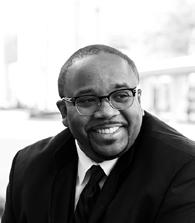
complete schedule is available at myfoa.
org. Please bring your instruments for the reading session—it’s always a highlight!
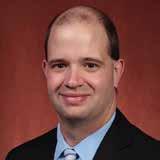
POPE
On Saturday, October 18, FOA will host the allstate audition reduction and adjudicator training. Your participation not only ensures fairness and consistency but also deepens your understanding of the preparation expected from our all-state students at the highest level.
Please also remember to
celebrate and recognize our colleagues by submitting Hall of Fame and Rising Stars nominations, due November 1. Details can be found at myfoa.org under the Awards tab. In addition, we are excited to announce our inaugural student composition contest—all guidelines are posted under the same Awards section.
Exciting News –Membership Growth!
We are proud to share that FOA membership is up by 58 members compared to this time last year (data as of September 6) for a total of 493 members! This incredible growth shows the strength, dedication, and passion of Florida’s orchestra educators. Thank you for being part of this amazing
community—and if you are new to FOA, welcome! Every additional member makes our voice louder, our resources stronger, and our mission more impactful.
Go, Florida Orchestra Association!
As we enter this busy season, let’s remember the power of our community. Take time to connect with colleagues, share what’s working in your classrooms, and lean on each other for fresh solutions. Together we strengthen the work of music education across our state.
Wishing everyone a wonderful first concert of the year, successful solo & ensemble events, and I look forward to seeing you at the Fall Conference!

Partners Make It Possible

FLORIDA MUSIC EDUCATION ASSOCIATION
2025-2026 DONORS
Thank you to all of the donors who have shown their dedication to the improvement of music education in Florida by supporting our Mission through financial contributions.
Our donors support specific causes by donating to the FMEA funds of their choice:
FMEA Scholarship Fund
Music Education Advocacy
General Fund
June M. Hinckley Scholarship
Professional Development for Members
Mel & Sally Schiff
Music Education Relief Fund
The following have graciously donated to FMEA from April 1, 2025, through September 12, 2025.
MAESTRO’S CIRCLE
$10,000 and up
No current donors at this time.
Carlos Abril
In Honor of Ms. Terry Paulen
Sandra Adorno
Lucinda Balistreri
In Honor of music & arts educators in Sarasota County
Trent Brown
In Honor of J. Mark Scott
Kasia Bugaj
Dale Choate
In Memory of Dr. Colleen Kirk
Dayna Cole
In Memory of Linda Mann
Alice-Ann Darrow
SUSTAINERS
$100 – $999
Virginia Densmore
ARTIST’S CIRCLE
$1,000 – $9,999
Artie Almeida
In Honor of my sister, Joyce Slatton, & my niece, Katie Grace Miller
Russell Robinson
In Memory of Gene Densmore
Virginia Dickert
In Memory of Lindsay Keller & Debbie Liles
Michael Dye
In Honor of Michelle R. Tredway
William Fredrickson
Kathleen James
In Memory of Dr. Dale Blackwell
Beth & Steven Kelly
Sheila & John King
Jason Locker
In Memory of June M. Hinckley
Joseph Luechauer
Deborah Mar
In Memory of Barbara Kingman
David Martinez-Cooley
John Nista
In Memory of Stanley Dmitrenko
Mary Palmer
Douglas Phillips
In Memory of Dr. Bobby Adams
Jeanne Reynolds
In Honor of Pinellas County
Performing Arts Teachers
Alicia Romero-Sardinas
In Memory of John Rose
Kathleen Sanz
In Memory of June Hinckley
J. Mark Scott
In Honor of Jason Locker, Michael Dye, Dr. Judy Bowers, Dr. Judy Arthur & Dr. Andre Thomas
D. Gregory Springer
David Bayardelle In Memory of Dr. George Sparks
Greg Carswell
In Memory of all deceased members of the FMEA
William Castillo
Zachary Chowning
Patrick Cooper In Memory of Martha Matteson
Dewey Dodds
Patrick Dunnigan
Judith Evans
James Bruce
Jamie Bryan In Honor of J. Mark Scott
Jeff Cayer
Timothy Eaton
Amanda Gilbert
SUSTAINERS
(Continued)
$100 – $999
Jeannine Stemmer
In Memory of Barbara Kingman & Lauren Alonso
Leiland Theriot
In Memory of Clayton Krehbiel
Richard Uhler
PATRONS
$25 – $99
Margaret Flood
Lisa Foltz
In Memory of Rev. V. Ron Feener
Bradley Franks In Memory of Gary W. Rivenbark
Tina Gill
In Honor of Gary Rivenbark
John Grau
Ron Guzzo
Cynthia Heidel
Bernie Hendricks
Marsha Kindall-Smith
Joshua Langston
Christine Lapka
Howard Weinstein In Memory of Barry Weinstein
Kenneth Williams
Anonymous In Memory of Joan Lee Alkyer
Matthew McCutchen In Honor of John Carmichael
Amelita McGrath
Katie McGuire Menges
Reiko Niiya
Terry Pattishall
Edward Prasse
Marie Radloff In Memory of Charles F. Ulrey
Clinton Randles
FRIENDS
up to $24
Angela Hartvigsen
William Hazlett
Lisa Hewitt
Sara Hofschneider In Honor of Adaline Burwell
Angel Irizarry
Jason Jerald
Sarah-Christina Larose
Jessica Moore In Memory of Dr. Nancy Barlar
John Parris
Ian Schwindt
Diana Rollo
William Rose
Susan Smith
Eddie Steadman
Andrea Szarowicz
On Behalf of Byrdie L. Jackson
Katelyn Taylor In Memory of Jared Benyola
Valerie Terry
Anonymous (3)
John Southall
Kelly Southall
Noiree Weaver
Anonymous (7)
DONATE TODAY FOR A STRONGER TOMORROW.
With your support, FMEA will continue to grow its programs for teachers and students, strengthen united advocacy efforts, and improve your professional development opportunities. Visit FMEA.org to learn more information about each fund and to make a donation.
Executive Director’s
NOTES
The mission of The Florida Music Education Association is to promote quality, comprehensive music education in all Florida schools.
Professional Learning Opportunities for Members
Preregistration is open for the 2026 Professional Learning Conference & All-State Concerts. Please be sure to view the FMEA website to take advantage of this outstanding conference, The Power in Our Profession: Music Education for Collective Impact, scheduled for January 14–17, 2026, in Tampa. President Skip Pardee’s conference theme will help us have a collective impact by collaborating and focusing on a common agenda for music education, continuous communication, and a strong infrastructure.
IMPORTANT DATES/DEADLINES
October 1, 2025 Presenters’ deadline for editing session details and requesting A/V equipment
October 23, 2025 Popular Music Collective Submission Deadline
October 30, 2025 Student Conference Experience Nomination Deadline
November 7, 2025 Digital Music Showcase Submission Deadline
November 3, 2025 Hotel Room Cancellation Deadline 5:00 pm
November 11, 2025 Hotels will charge your credit card a nonrefundable deposit for the first night of each room not cancelled by the deadline.
December 12, 2025 w Early Registration closes at midnight. Prices increase to the regular registration rates. You may continue to register and pay online until the conference.
w Postmark deadline for checks mailed to pay for conference registration; after this date, all unpaid conference registrations must be paid by credit card online, or a check must be brought with you to the conference.
December 15, 2025 w All school lodging checks are due to hotels, payable to the hotel where reservations were made for you and/or your students.
w The final deadline for discounted hotel blocks; unsold rooms in the FMEA blocks are released back to hotels.


Teacher Satisfaction Survey
Conducted by the National Federation of State High School Associations (NFHS)
The survey is being conducted to measure educator satisfaction trends and to understand the impact of (or need for) specific interventions in retention and advocacy. With more than 3,000 responses yearly, they need your help ensuring feedback from every area of the country! If you have taken this survey in the past, please complete it again. With multiple years of data, the NFHS can begin to track and interpret trends and impacts of interventions to build more complete resources for you. The survey should take only a few minutes to complete and includes sections on:
w Why you became an educator
w Your satisfaction as an educator
w The future of your program
w Basic demographic information
The survey link can be found here: Music Educator Satisfaction Survey. The survey closes on October 15, 2025 Please complete the survey, as the responses assist FMEA in working to meet the needs of Florida teachers through the Teach Music, Florida Coalition.
I hope you are having a productive fall season with your students.
Kathleen D. Sanz, PhD
Kathleen D. Sanz, PhD
FLORIDA MUSIC EDUCATION ASSOCIATION
Officers and Directors
EXECUTIVE BOARD
President Harry “Skip” Pardee, EdD
Collier County Public Schools
5775 Osceola Trail; Naples, FL 34109-0919 (239) 377-0087; pardeh@collierschools.com
Past President Jason P. Locker
Orange County Public Schools
445 W. Amelia St.; Orlando, FL 32801 (407) 317-3200; jasonlocker@fmea.org
President-Elect
Bernard “Bernie” Hendricks, Jr.
Ocoee High School
1925 Ocoee Crown Point Pkwy.; Orlando, FL 34761 (407) 905-3009; bernard.hendricks@ocps.net
FBA President Jeff Cayer, EdD
Marshall Middle Magnet School
18 S. Maryland Ave.; Plant City, FL 33563-6008 (813) 757-9360; president@fba.flmusiced.org
FCMEA President Kyle Prescott, DMA
Florida Atlantic University
777 Glades Rd.; Boca Raton, FL 33431-6424 (561) 297-3826; kpresco2@fau.edu
FEMEA President Meghan Alfaro
Pinellas District Office
301 4th St. SW; Largo, FL 33770-3536 (727) 588-6055; meghan@femea.flmusiced.org
Florida NAfME Collegiate President Jason Lane
Florida A&M University jason1.lane@famu.edu
FMSA President John J. Dupuis
Volusia County Schools
200 N. Clara Ave.; DeLand, FL 32720-4207 (813) 787-6790; jjdupuis@volusia.k12.fl.us
FOA President Andrea Szarowicz
Steinbrenner High School
5575 W. Lutz Lake Fern Rd.; Lutz, FL 33558-9234 (813) 792-5131; aszarowicz@myfoa.org
FVA President Jeannine Stemmer
Florida Christian School
4200 SW 89th Ave.; Miami, FL 33165 (305) 226-8152; jeannine@fva.net
Member-at-Large
Steven N. Kelly, PhD
Florida State University
School of Music, KMU 330; Tallahassee, FL 32306 (850) 644-4069; skelly@admin.fsu.edu
EX-OFFICIO MEMBERS
Historian/Parliamentarian & Executive Director Kathleen D. Sanz, PhD Hinckley Center for Fine Arts Education
402 Office Plaza Dr.; Tallahassee, FL 32301-2757 (850) 878-6844; Fax: (850) 942-1793; kdsanz@fmea.org
Editor-in-Chief Kelly Miller, DMA
University of Central Florida; 12488 Centaurus Blvd.; Orlando, FL 32816-8009; (407) 823-4545; kelly.miller@ucf.edu
Conference Planning Committee Chairperson John K. Southall, PhD Indian River State College; 3209 Virginia Ave.; Fort Pierce, FL 34981 (772) 418-9133; johnsouthall@me.com
FSMA President Benny L. Bolden, Jr., EdD laruemusic99@gmail.com
Hall of Fame Chairperson...................................................... Mary Palmer, EdD (407) 252-5172; mpalmerassoc@aol.com
Florida NAfME Collegiate Advisor Mark A. Belfast, Jr., PhD (850) 644-3424; mbelfast@fsu.edu
DOE Arts Education Consultant Erin O’Connor
Florida DOE, Bureau of Standards & Instructional Support 325 W. Gaines St.; Tallahassee, FL 32399-0400 (850) 245-0762; erin.o’connor@fldoe.org
FMEA COMMITTEES & COUNCILS
COUNCILS
FLORIDA COLLEGE MUSIC EDUCATORS ASSOCIATION
President Kyle Prescott, DMA Florida Atlantic University; 777 Glades Rd.; Boca Raton, FL 33431-6424 (561) 297-3826; kpresco2@fau.edu
FLORIDA NAFME COLLEGIATE
President.......................................................................................... Jason Lane Florida A&M University; jason1.lane@famu.edu
FLORIDA MUSIC SUPERVISION ASSOCIATION
President.................................................................................... John J. Dupuis Volusia County Schools; 200 N. Clara Ave.; DeLand, FL 32720-4207 (813) 787-6790; jjdupuis@volusia.k12.fl.us
MULTICULTURAL NETWORK
Chairperson................................................................... Arnekua Jackson, PhD St. Thomas University; 16401 NW 37th Ave.; Miami Gardens, FL 33054 arnekuajackson@gmail.com
COMMITTEES
Advocacy Jeanne W. Reynolds, Co-Chairperson (727) 744-7252; jeannewrey@gmail.com
Advocacy Angela Hartvigsen, Co-Chairperson School Board of Sarasota County; 1960 Landings Blvd.; Sarasota, FL 34231 (941) 927-9000; angela.hartvigsen@sarasotacountyschools.net
All-State Eligibility ...................................................
Harry “Skip” Pardee, EdD Collier County Public Schools; 5775 Osceola Trail; Naples, FL 34109-0919 (239) 377-0087; pardeh@collierschools.com
Awards
Sondra A. W. Collins sondra.collins@marion.k12.fl.us
Budget/Finance, Development
Harry “Skip” Pardee, EdD Collier County Public Schools; 5775 Osceola Trail; Naples, FL 34109-0919 (239) 377-0087; pardeh@collierschools.com
Contemporary Media
Clint Randles, PhD University of South Florida; 4202 E. Fowler Ave.; Tampa, FL 33620-9951 (813) 974-2311; randlesc@usf.edu
Diverse Learners
Christine Lapka, EdD University of Central Florida; 12488 Centaurus Blvd.; Orlando, FL 32816-2372; christine.lapka@ucf.edu
Emerging Leaders Dakeyan C. Graham, PhD, EdD, DMA Alachua County Public Schools; 3600 NE 15th St.; Gainesville, FL 32609 dregraham@gmail.com
Florida Corporate & Academic Partners
Fred Schiff All County Music; 8136 N. University Dr.; Tamarac, FL 33321-1708 (954) 722-3424; fred@allcountymusic.com
Professional Learning Ajori Spencer Pinellas District Office; 301 4th St. SW; Largo, FL 33770-3536 (727) 588-6055; spencera@pcsb.org
Research D. Gregory Springer, PhD
FSU College of Music; 122 N. Copeland St.; Tallahassee, FL 32306 (850) 644-2925; dgspringer@fsu.edu
Secondary General Music Ed Prasse Leon High School; 550 E. Tennessee St.; Tallahassee, FL 32308 (850) 617-5700; prassee@leonschools.net
Student Engagement Michael Antmann, EdD Freedom High School; 2500 W. Taft-Vineland Rd.; Orlando, FL 32837 (407) 816-5600; michael.antmann@ocps.net
FMEA COMPONENTS
FLORIDA BANDMASTERS ASSOCIATION
President Jeff Cayer, EdD president@fba.flmusiced.org
Past President Bernard (Bernie) Hendricks, Jr. Ocoee High School; 1925 Ocoee Crown Point Pkwy.; Ocoee, FL 34761 bernard.hendricks@ocps.net
Executive Director Neil Jenkins Florida Bandmasters Association; P.O. Box 840135; Pembroke Pines, FL 33084 (954) 432-4111; Fax: (954) 432-4909; exec@fba.flmusiced.org
Business Manager Jo Hagan, CPA 8975 San Rae Rd.; Jacksonville, FL 32257 (904) 379-2245; Fax: (904) 379-2260; jo@barefootaccounting.com
FLORIDA ELEMENTARY MUSIC EDUCATORS ASSOCIATION
President Meghan Alfaro Pinellas District Office; 301 4th St. SW; Largo, FL 33770-3536 (727) 588-6055; meghan@femea.flmusiced.org
Past President Ashley Peek Holley-Navarre Intermediate; 1936 Navarre School Rd.; Navarre, FL 32566-7504; ashley@femea.flmusiced.org
Executive Director .................................................................. Jennifer Sullivan 1750 Common Way Rd., Orlando, FL 32814; (321) 624-5433; slljenn@aol.com
FLORIDA ORCHESTRA ASSOCIATION
President Andrea Szarowicz Steinbrenner High School; 5575 W. Lutz Lake Fern Rd.; Lutz, FL 33558-9234 (813) 792-5131; aszarowicz@myfoa.org
Past President ............................................................................. Laurie Bitters Winter Park High School; 2100 Summerfield Rd.; Winter Park, FL 32792 (407) 622-3200; laurie.bitters@gmail.com
Executive Director Cheri A. Sleeper 1915 S. 47th St.; Tampa, FL 33619; (813) 363-4139; csleeper@myfoa.org
FLORIDA VOCAL ASSOCIATION
President Jeannine Stemmer Florida Christian School; 4200 SW 89th Ave.; Miami, FL 33165 (305) 226-8152; jeannine@fva.net
Past President David Pletincks Powell Middle School; 4100 Barclay Ave.; Brooksville, FL 34609-0860 (352) 403-8437; david@fva.net
Executive Director David Verdoni verdoni@fva.net
Business Manager...................................................................... Jo Hagan, CPA 8975 San Rae Rd.; Jacksonville, FL 32257 (904) 379-2245; Fax: (904) 379-2260; business@fva.net
CENTER FOR FINE ARTS EDUCATION
402 Office Plaza Dr.; Tallahassee, FL 32301-2757 (850) 878-6844; Fax: (850) 942-1793
President/CEO Kathleen D. Sanz, PhD (kdsanz@fmea.org)
Director of Operations Valeria Anderson, IOM (val@fmea.org)
Technology Director Josh Bula, PhD (josh@fmea.org)
Marketing & Membership Coordinator Jasmine VanWeelden (jasmine@fmea.org)
Administrative Assistant .................................. Siena Deaton (siena@fmea.org)
PROFESSIONAL LEARNING CONFERENCE
Exhibits Manager fmeaexhibits@fmea.org
Local Chairperson ............ Jon Sever (813) 272-4861; jon.sever@sdhc.k12.fl.us
